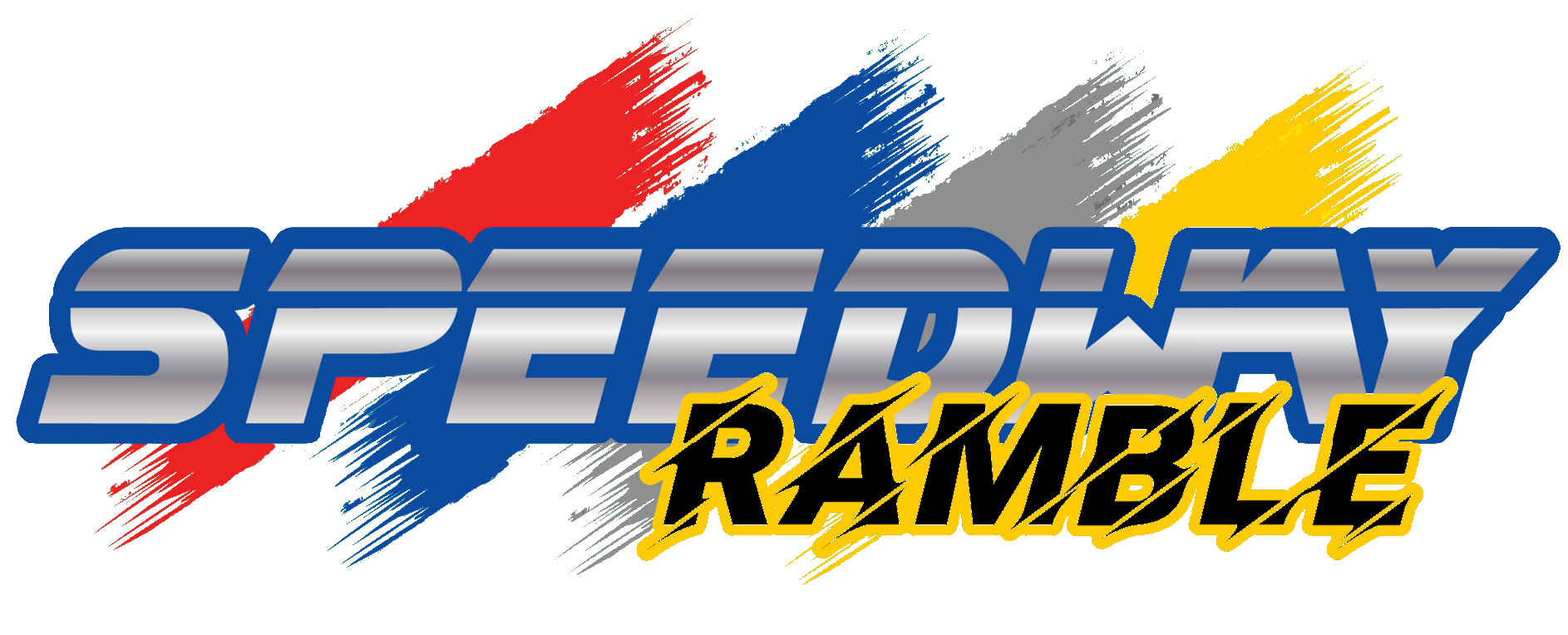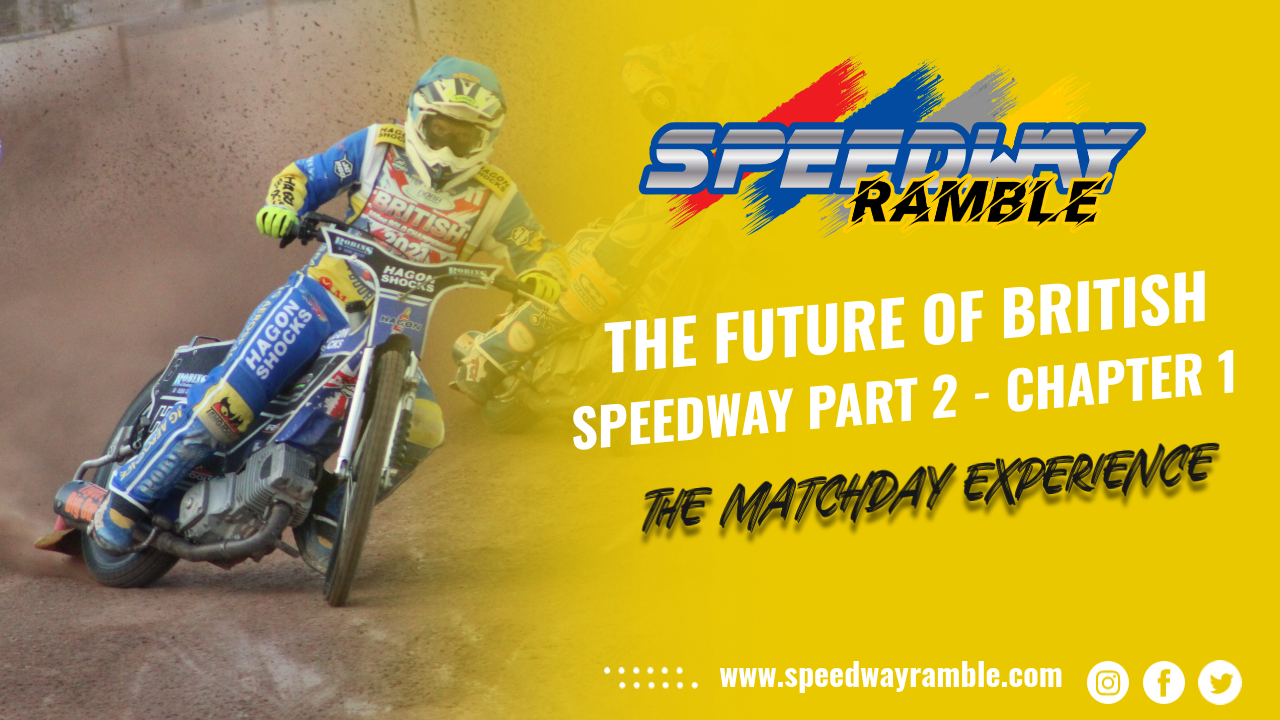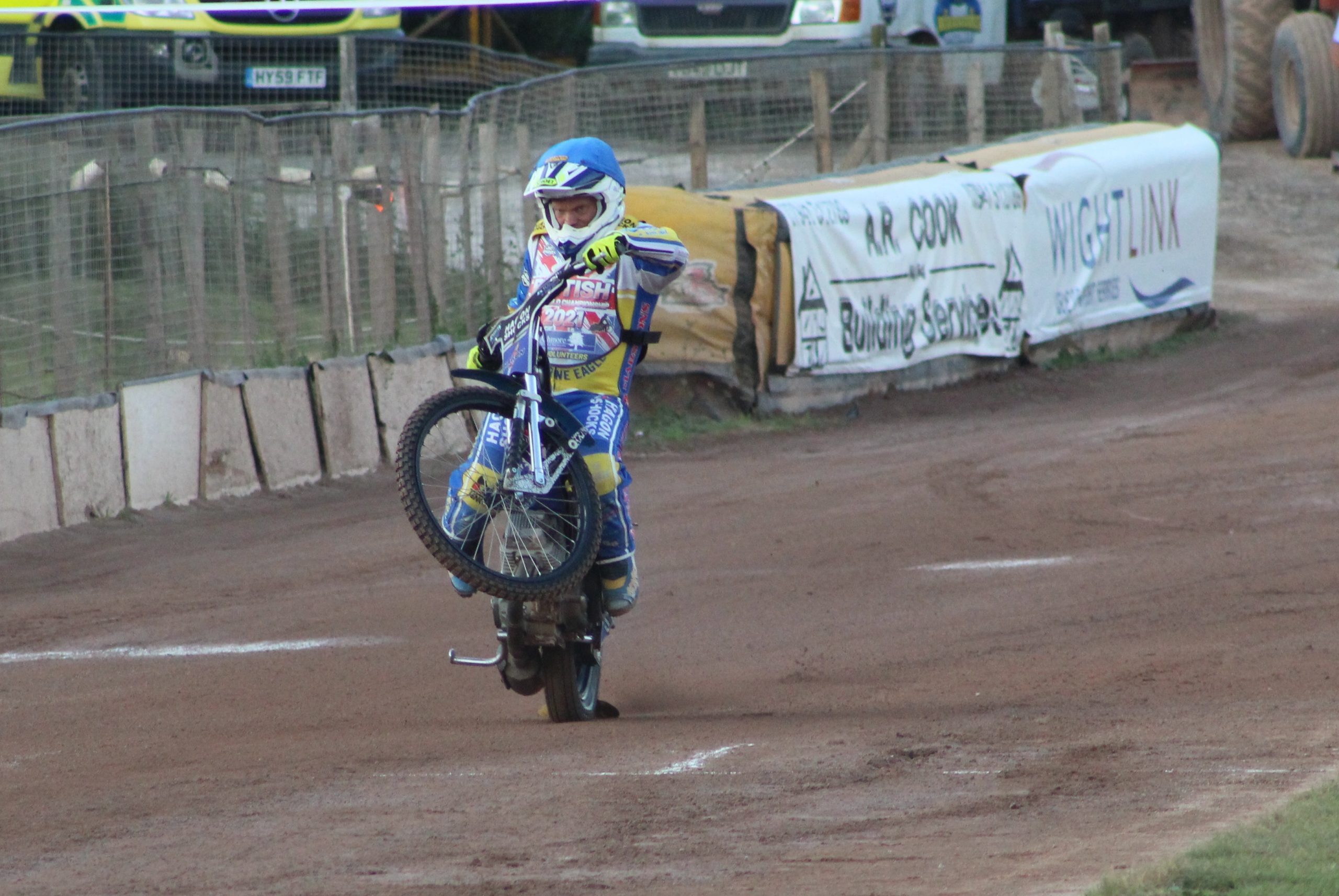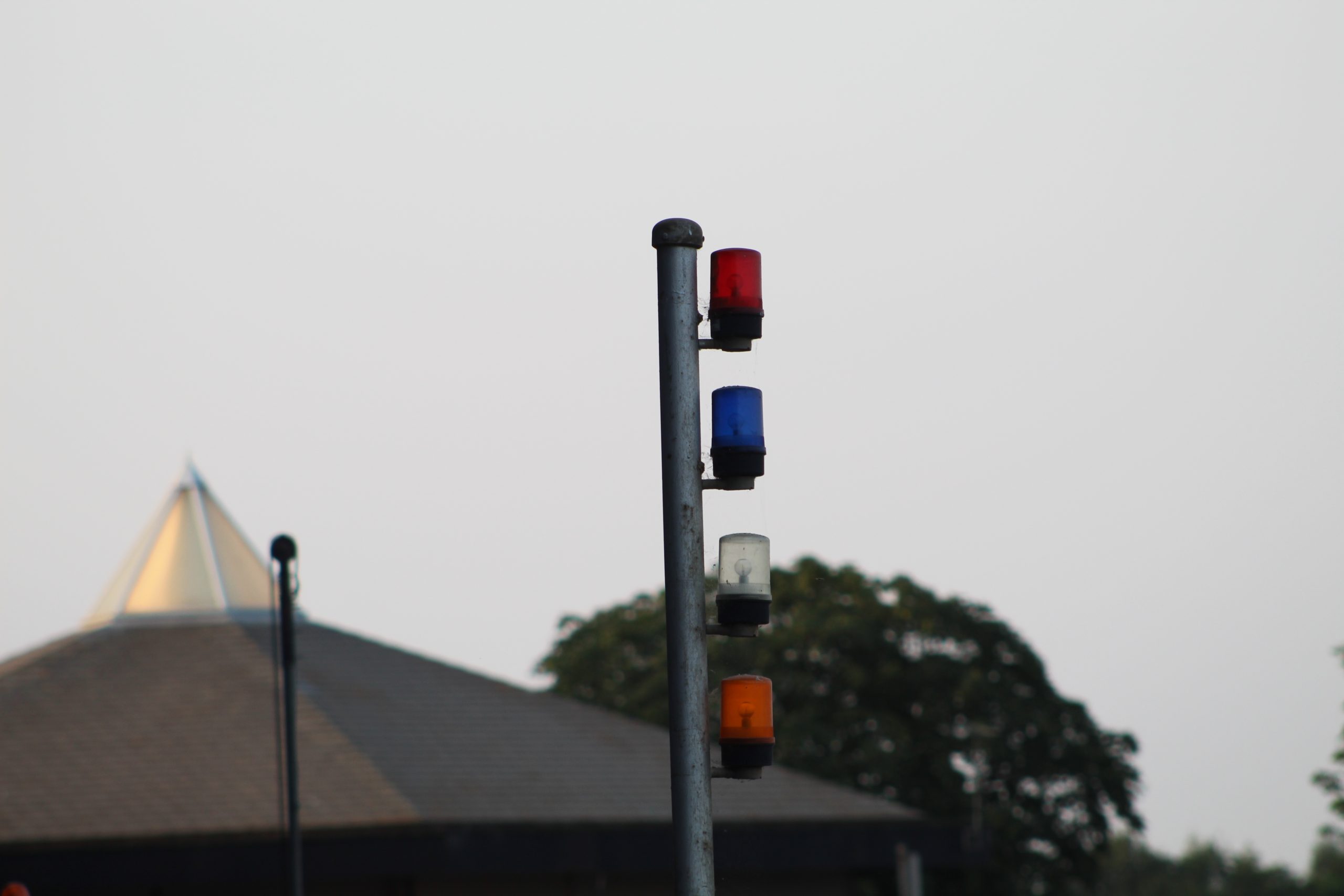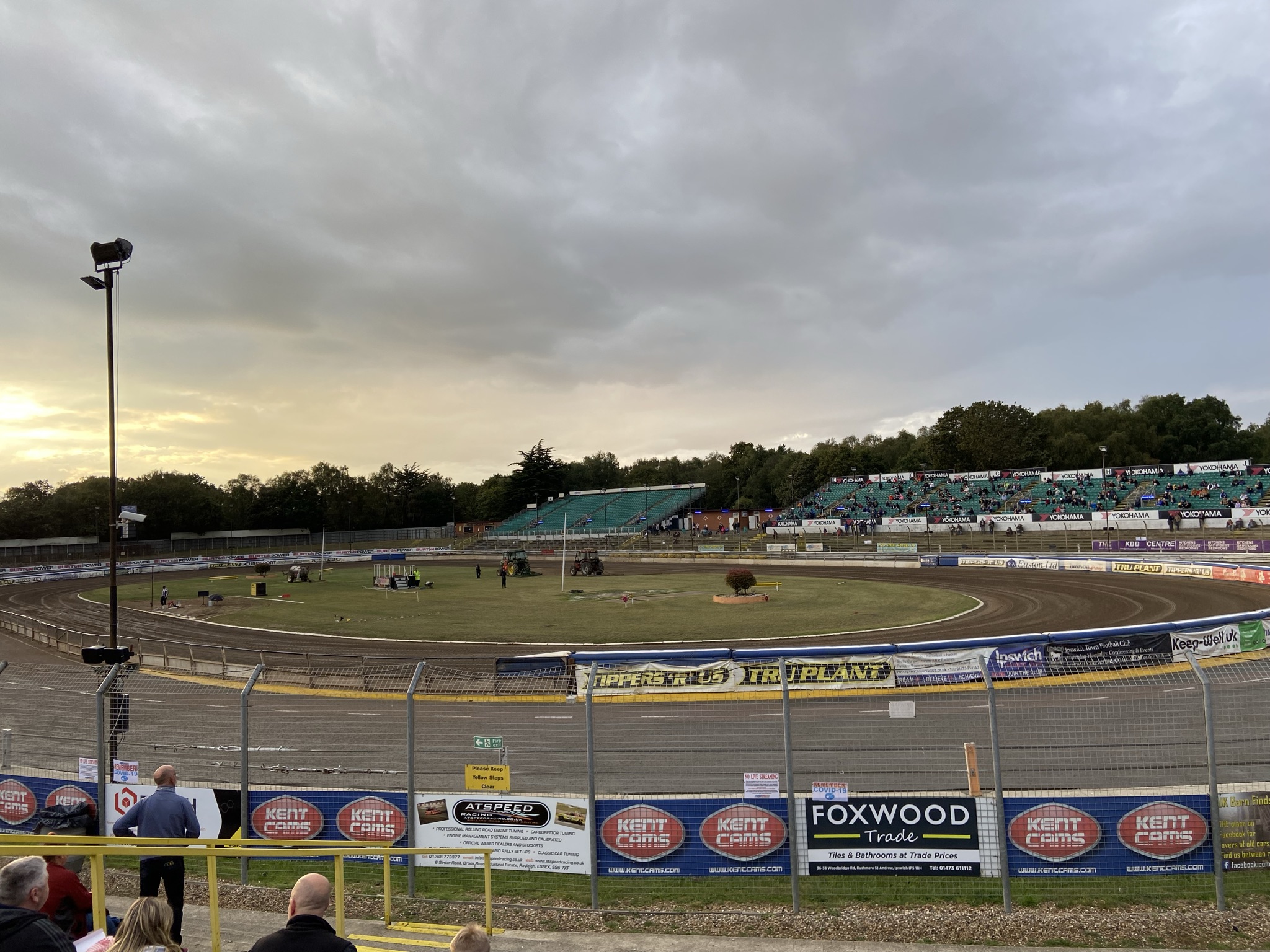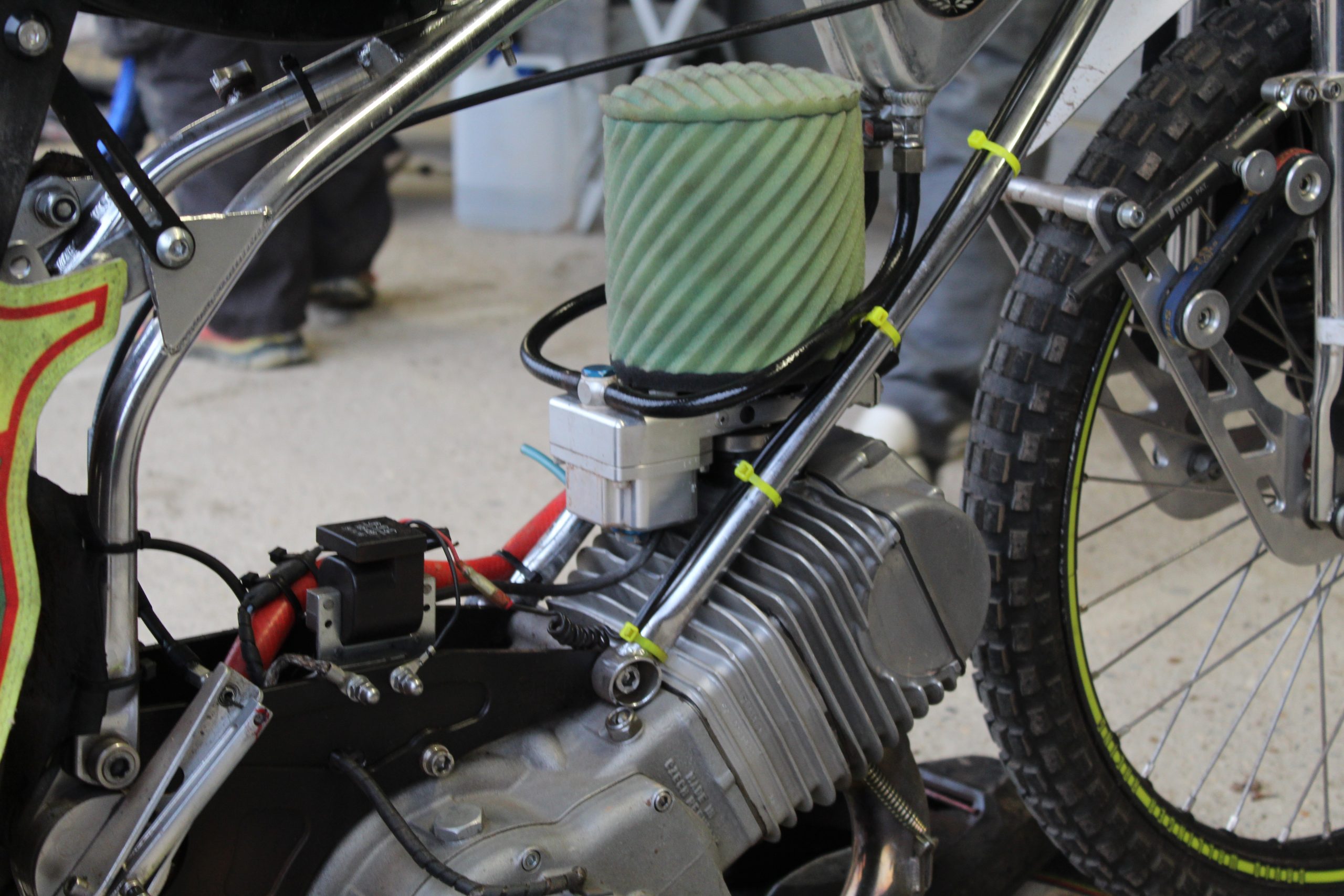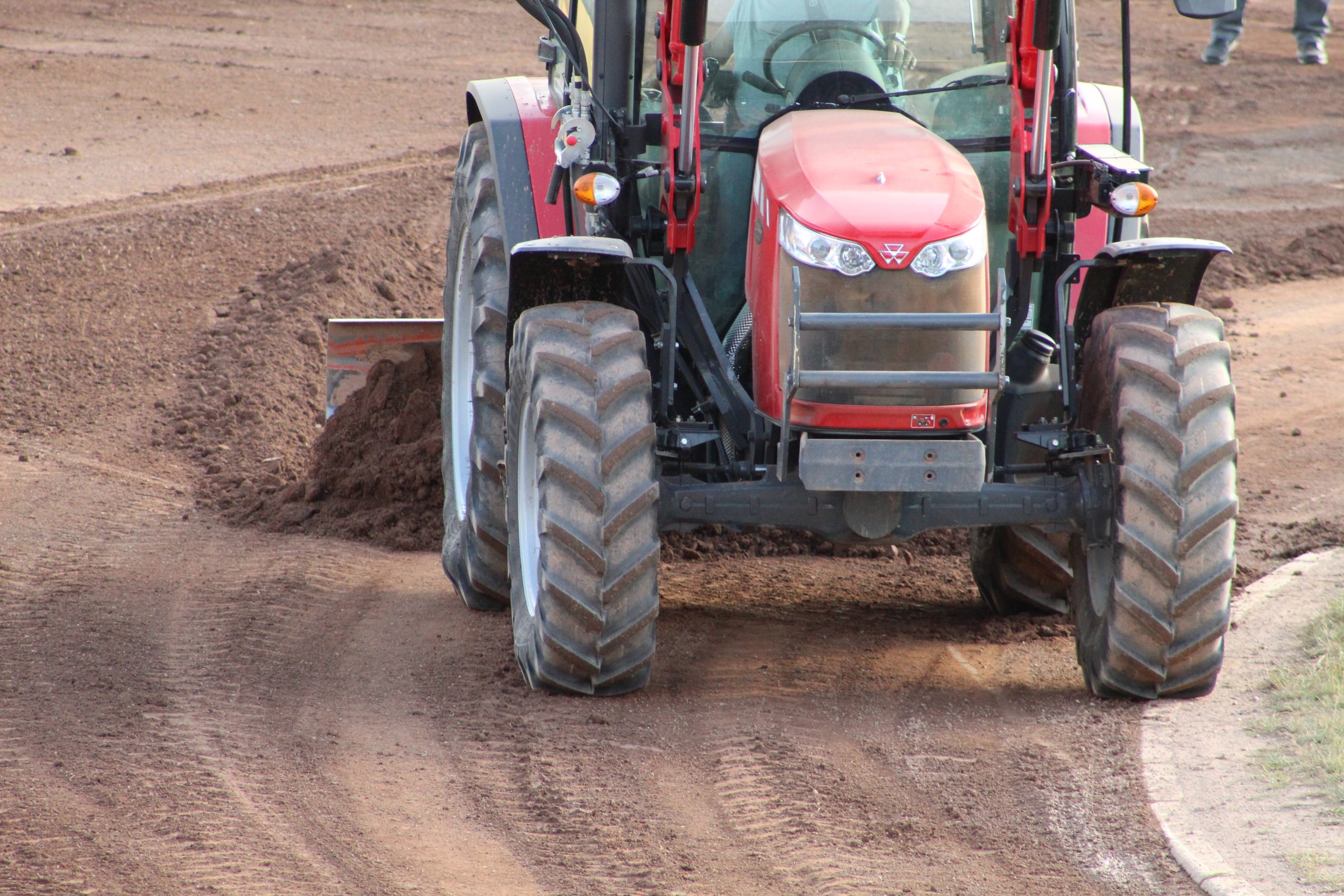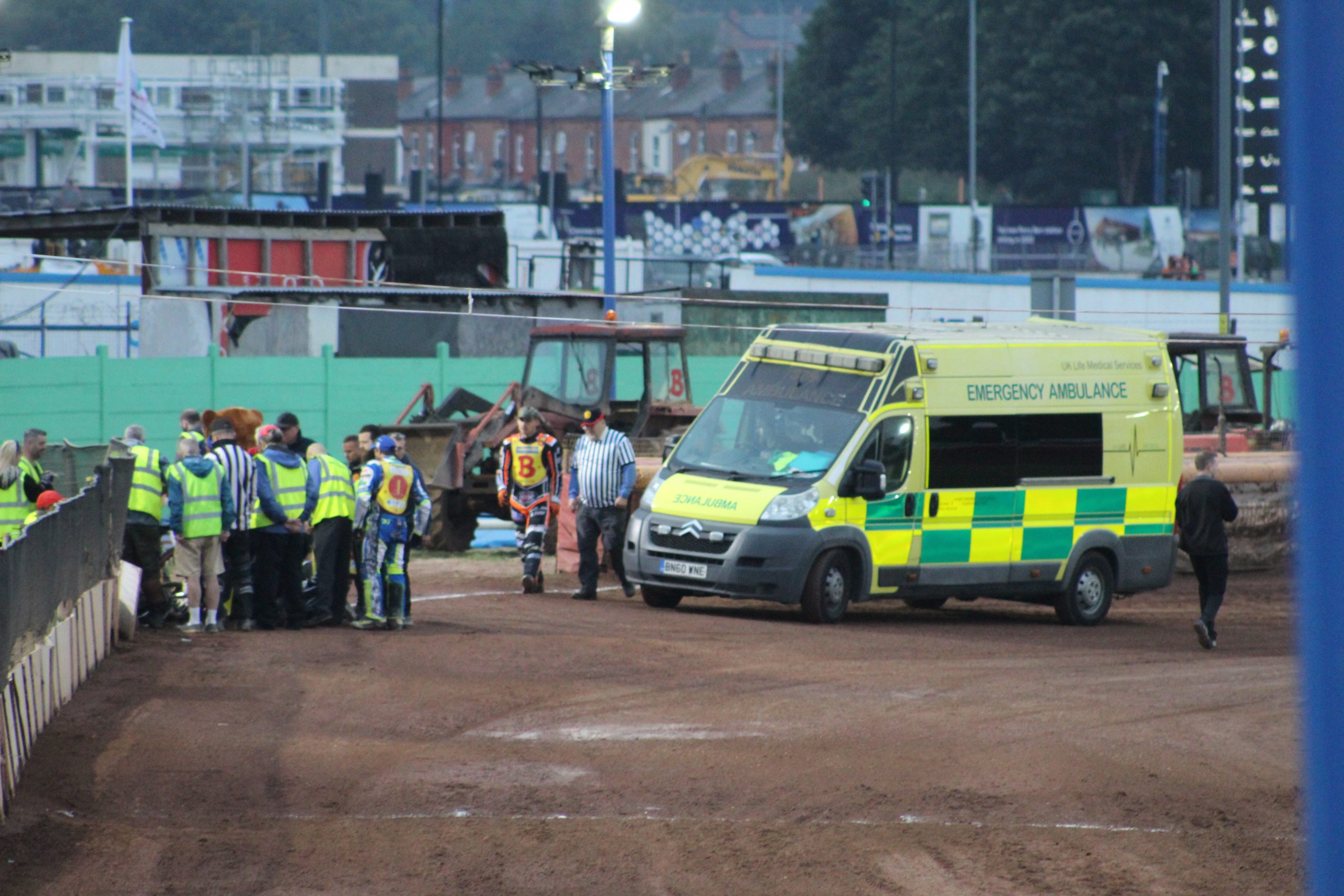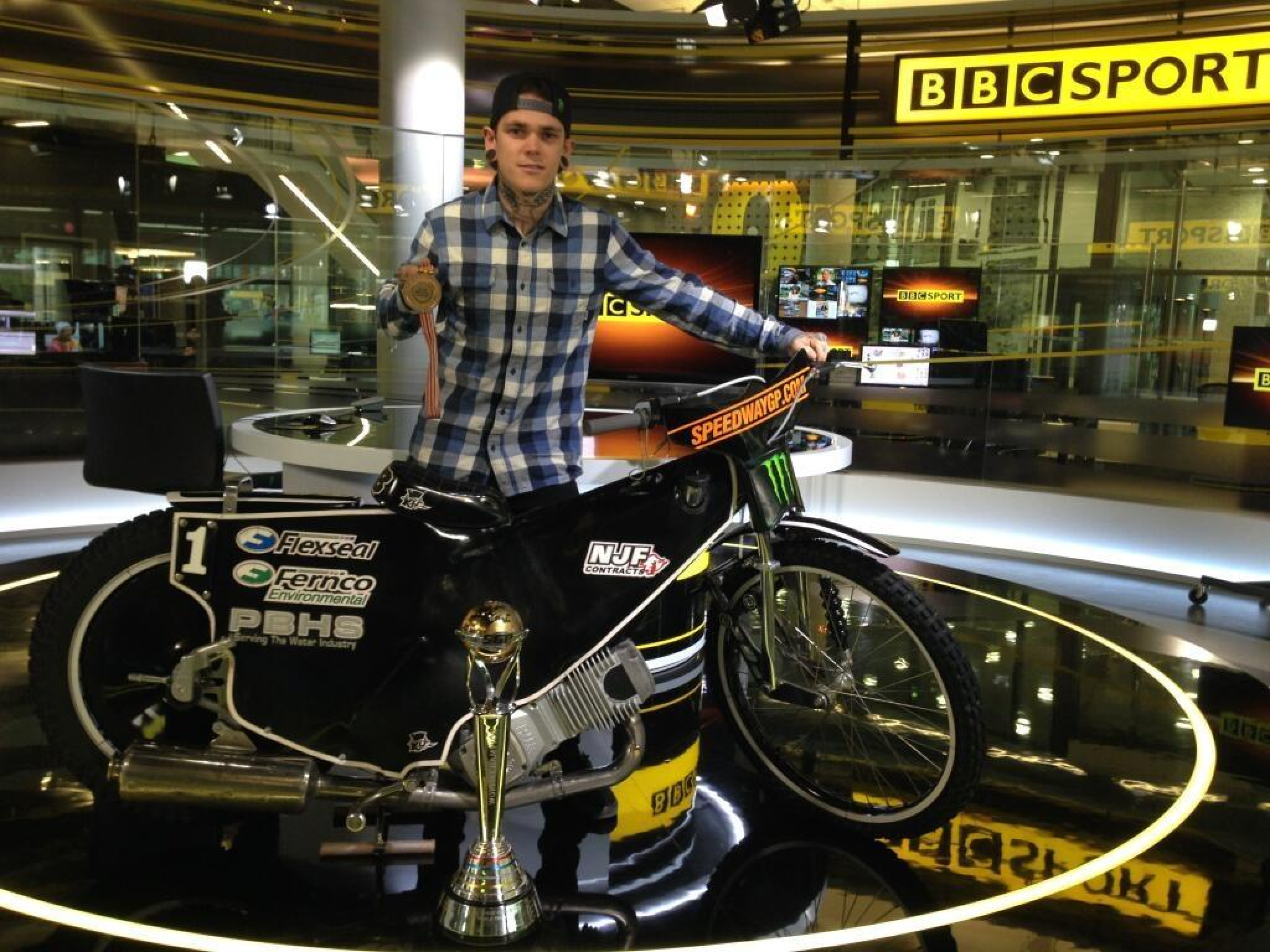Part 2 of 'The Future of British Speedway' Series is now up on YouTube. The latest video talks about the Matchday itself and how we can improve it for the paying public.
- Home
- The Future of British Speedway
Improving the Sport Part 3
Part 3 we're looking at having 1 Professional League, Looking at the Calendar, The League & Competitions Layout and The National League.
Structuring the Calendar
We need to structure the British Calendar to suit our needs, forget Grand Prix superstars for the minute. Now is the time to build the League based on our economy. There are plenty of talented riders around who could do the job, but we need to create a support structure.
The League
All professional speedway clubs will enter one professional British League, the 'premiership' if you will. I'm fully aware of the shortage of riders and the number of matches needed for riders. I'll come on to that! Considering all the current members, a single league allows 34 matches for each team and 34 matches for the club riders. The season will start at the beginning of March. We aim to complete league matches by mid-August, allowing the playoffs to be completed in September. This allows all clubs to get 1 home and 1 away match every week. There are 22 weeks from March to the first week of August, so we have a few weeks wiggle room for the inevitable rain offs and other meetings such as testimonials or test matches.
Top 6 go into the TV-friendly playoff system, it doesn't matter how it's structured as it's for TV, but I would suggest 3rd v 6th. 4th v 5th in a one-off match. 1st then picks their first opponent, 2nd get the remaining, then 2-legged semi-finals and finals to decide the champions. The romantic in me would love to see the traditional 'winner takes all' league system from before the playoff era, but I acknowledge this system works well for television. We're trying to build this League to appeal to a broader audience; therefore, it must suit TV demands.
Once most league fixtures are completed, we can start a new competition, It doesn't matter what it's called, but I'll call it the Fours Trophy for this exercise.
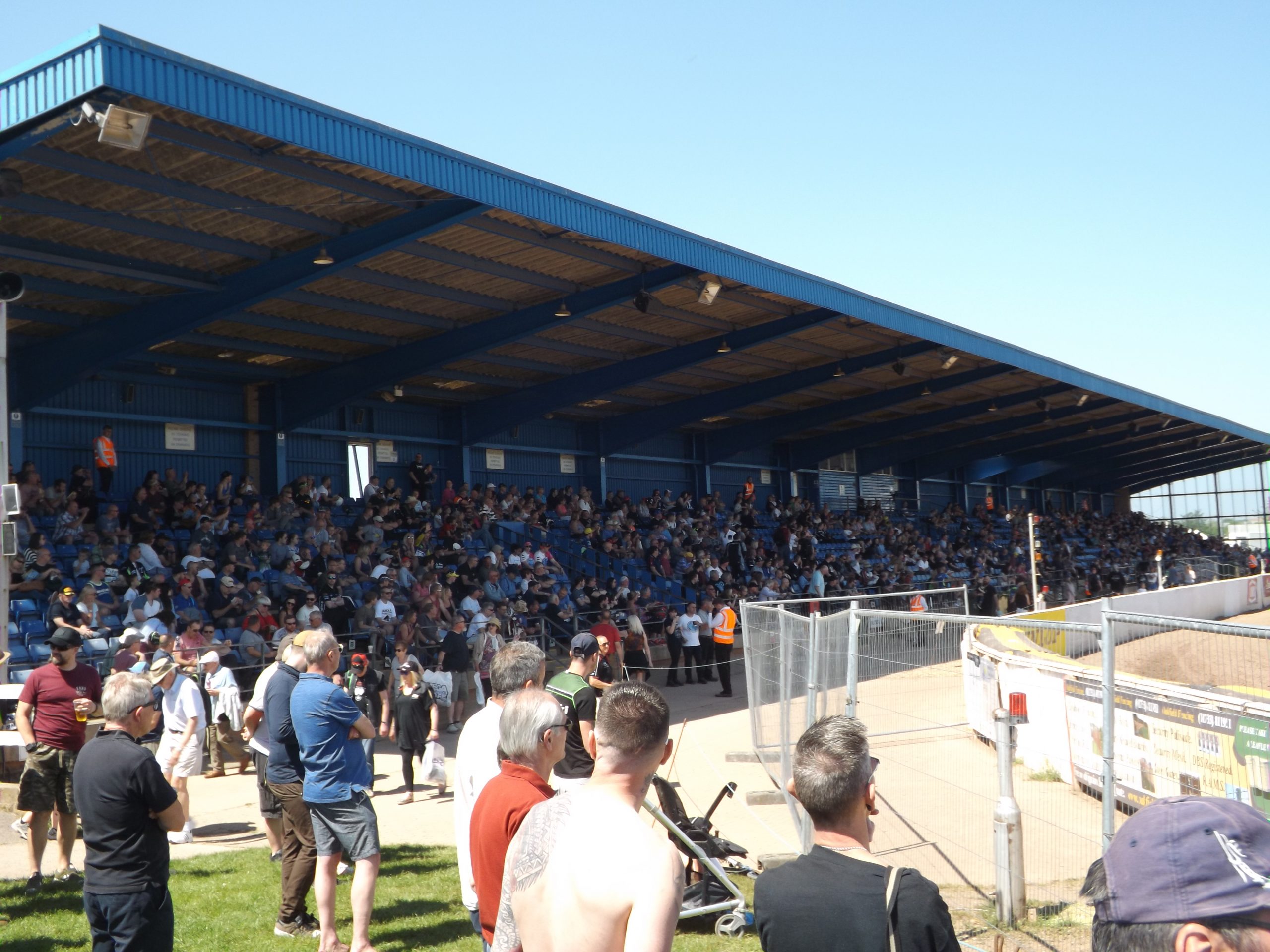
The Fours Trophy (i.e. The Rendition of the Fours)
Once the League has started to rap up, we can create a second competition. You can call it whatever you want, but I've always liked the 'Speedway Legends Trophy' idea, celebrating riders of the past. Remember the carnival atmosphere we used to get at events like the fours and best pairs? Even in 2018, the fours at Peterborough was well received and had a bumper crowd. This is what we want to recreate.
The League can be divided up into 5 groups, and each club hosts the other 2 teams in their 'home' matches in a new format designed for 3 teams at once. 3 Matches, team with the most points after the 3 matches progress to the final.
The final will be contested by 5 teams and a bumper 30 heat contest to crown The Legends Trophy Champions. The 2022 Trophy could be in memory of Colin Pratt and Alan Graham, a tribute to the men who lived a briefed the sport.

Knock Out Cup
If teams want to bulk out the fixtures, you could re-introduce the traditional Knock Out Cup.
Divide the Nation into 5 Groups, winner of each group goes through plus the best-placed second club.
Another two groups, North and South. Winners of each group go through to the final.
2-Legged winner takes all final.
Other Meetings
The British League Riders Championship
Focus on the fans, get the crowds back in, have pre-match fan zones and post-match events. Try to recreate the buzz we were once accustomed to at prestigious events like the British Final. Make it a Saturday afternoon, say 4 pm, to encourage the attendance of families and long-distance travelling supporters.
The Best Pairs (36 Riders, 2 from each Club)
We all remember this at Somerset on the Friday before the GP. That option has gone out the window for two reasons, Somerset isn't there anymore, and SGP2 will take place on the Friday before the British Grand Prix (Since writing this, I found out SGP2 will take place on the sunday after the Cardiff SGP). The pairs could be contested by 36 riders, two from each club. You could even stage it over three meetings, two semi-finals and a final.
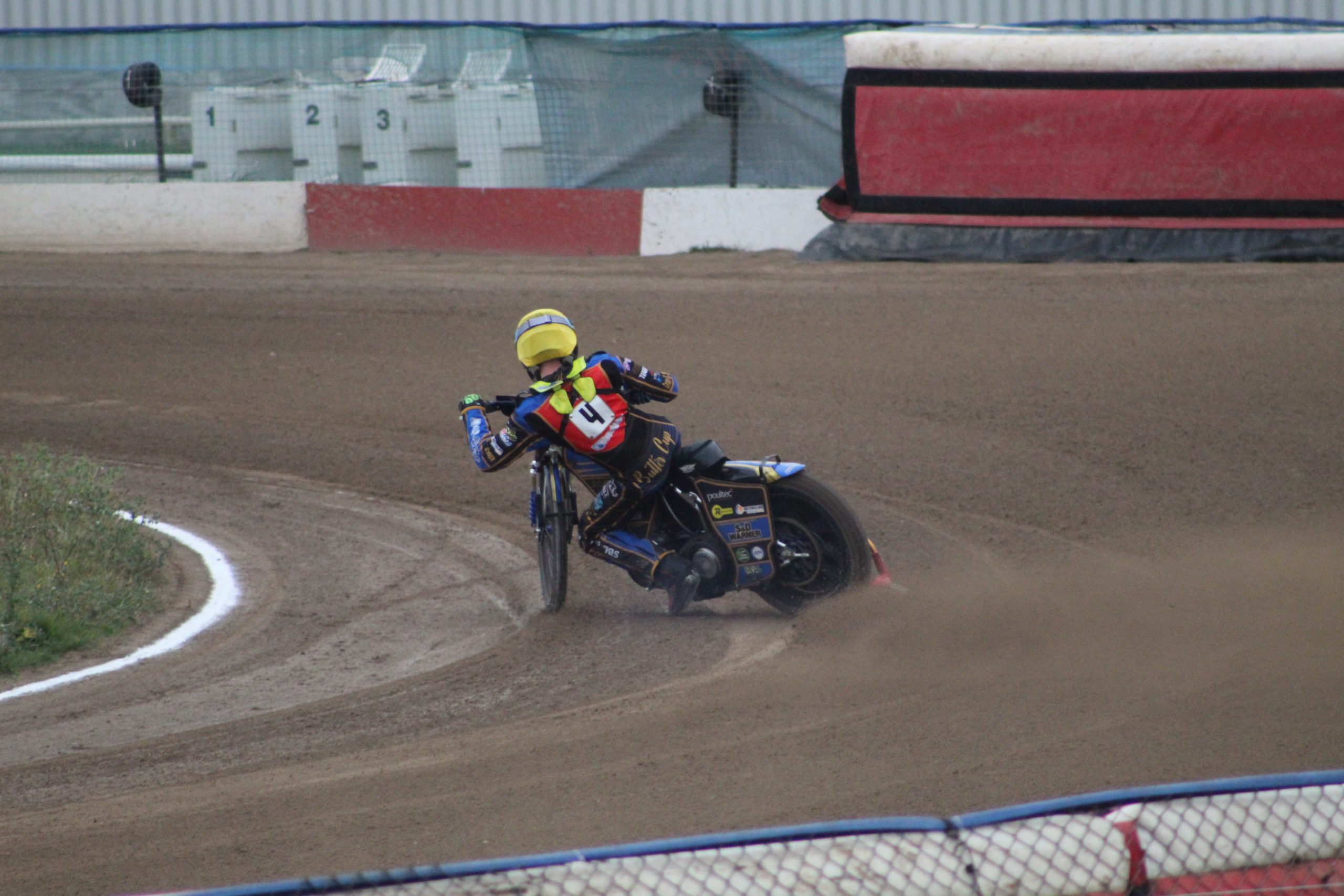
The National League
The first thing we need to do is bring down the barrier to entry and make lower League racing affordable for riders. We probably won't be able to do much in the first year as it might be too quickly. Still, in year two we could introduce a cheaper version of modern speedway bike used specifically for National Development Standard Speedway, alongside the SGP4 youth machinery. The bike could be a version of the old upright engines with cheaper tuning requirements.
BSL could purchase bikes in a job lot and essentially lease this machinery to the NDL riders for their matches, keeping the cost down for the prospective riders and giving BSL more autonomy over the costs of the bikes. You could call it the BSL Rider Community Scheme. This will give riders access to a central machinery pool, especially for the National Development standard speedway.
If BSL can store and move the bikes in the future, Riders who only ride solely in the National League could turn up in their mum's car without worrying about vans and trailers. All they would need is their riding equipment. Once they go into the professional League, they can decide to commit and purchase the required machinery.
As technology and availability evolve, we could introduce F2 or electric bikes. Tracks could host training days using electric technology without worrying about noise issues! I do believe Electric Bikes have a place in speedway. That place could be streamlining the pathway into the National League on the upright engines, then into the full laydowns used in professional racing.
The National Development League is so important to the future of the sport. Now we've only got Mildenhall as an NDL exclusive track. The BSL Futures team will need to be bringing more tracks back to for development purposes like Buxton, Linlithgow, Sittingbourne, St Austell, and training specific tracks like what we had at Eastbourne and Sheffield.
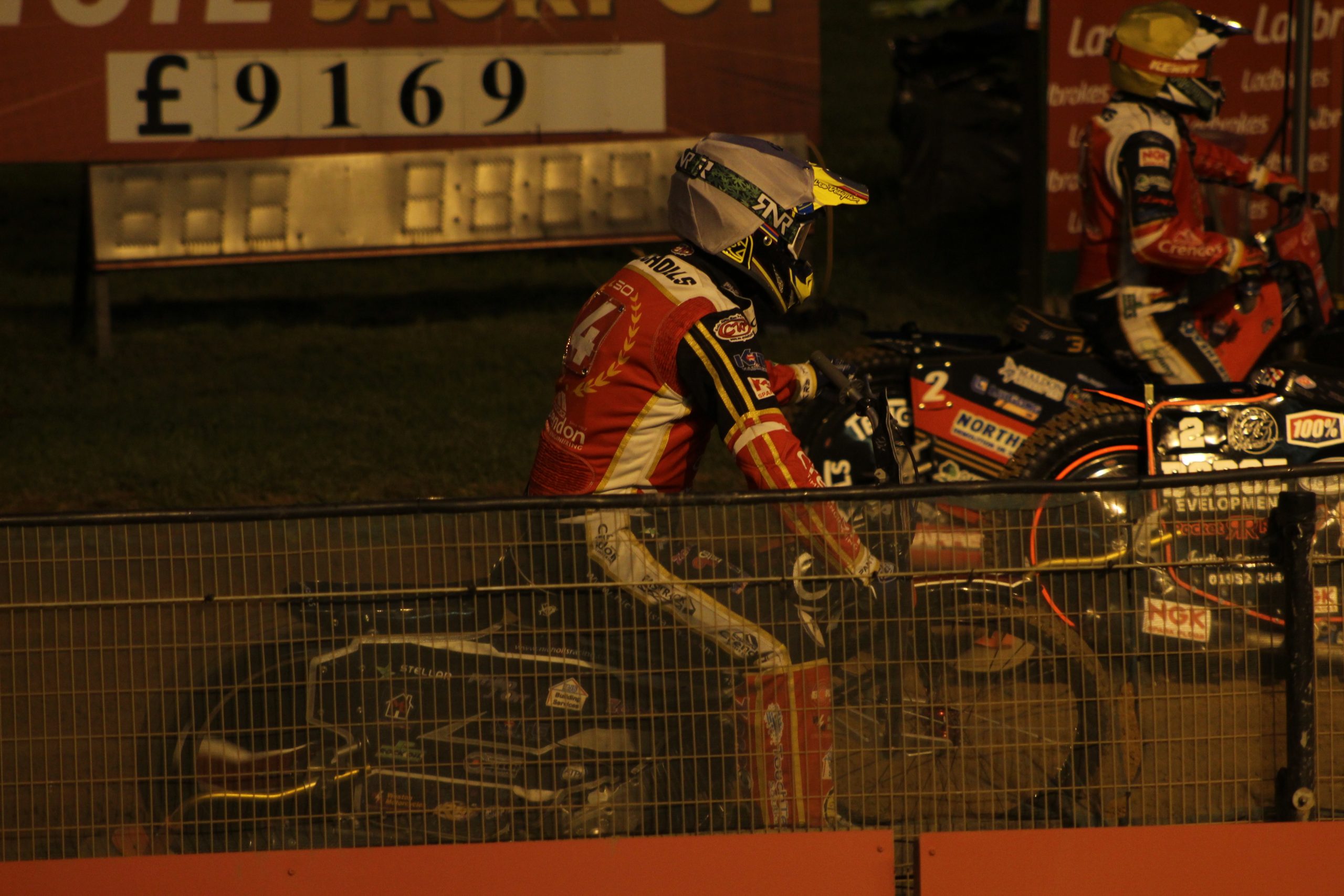
In Summary
Each club (and the riders associated) is guaranteed;
34 League Matches, 17 Home and 17 Away
3 Legends Trophy Matches
4 Knock Out Cup Group 1 Matches (if applicable)
The clubs can also potentially have;
4 further Matches in the League Play-Offs
1 Outing in the Legends Trophy Final
4 further Matches in the Knockout Cup Group 2
2 Matches in the Knockout Cup Final.
2 further matches for top end riders in the Pairs and BLRC.
Clubs can guarantee their riders 41 matches, extending to 52 for successful sides.
Example of the Comparable to Current System (2021)
Scott Nicholls – Current System (Guaranteed Appearances Only)
22 Matches with Kent
20 Matches with Peterborough
42 Matches through the campaign, excluding guest bookings, individuals and finals etc.
Scott Nicholls – New System (Guaranteed Appearances Only)
34 Matches in League with Kent
4 Matches in the Legends Tournament
4 Knock Out Cup Matches
42 Matches through the campaign, excluding guest bookings and finals etc.
Improving the Sport
Current Issues in Speedway
Improving the Sport Part 2
In Part 2, we're looking at Club Memberships, Match Ticket systems, Club Shops and Digital Media.
British Speedway League (BSL Club Membership)
BSL Club Membership could split some people, as every club will require total commitment to support the British Speedway League as a central entity. The British Speedway League Club will gradually replace the mishmash of different platforms British clubs use for their digital and club merchandise needs. Through this platform, supporters will buy their matchday tickets (in tandem with, not instead of cash turnstiles), club merchandise, and access digital content such as match highlights and interviews. We can also use the platform for premium streaming of live matches, possibly through a pay as you go model.
Imagine a single place where you can reach any potential fans, helping entice them into this beautiful sport through promotional videos and slick branding to back it up.
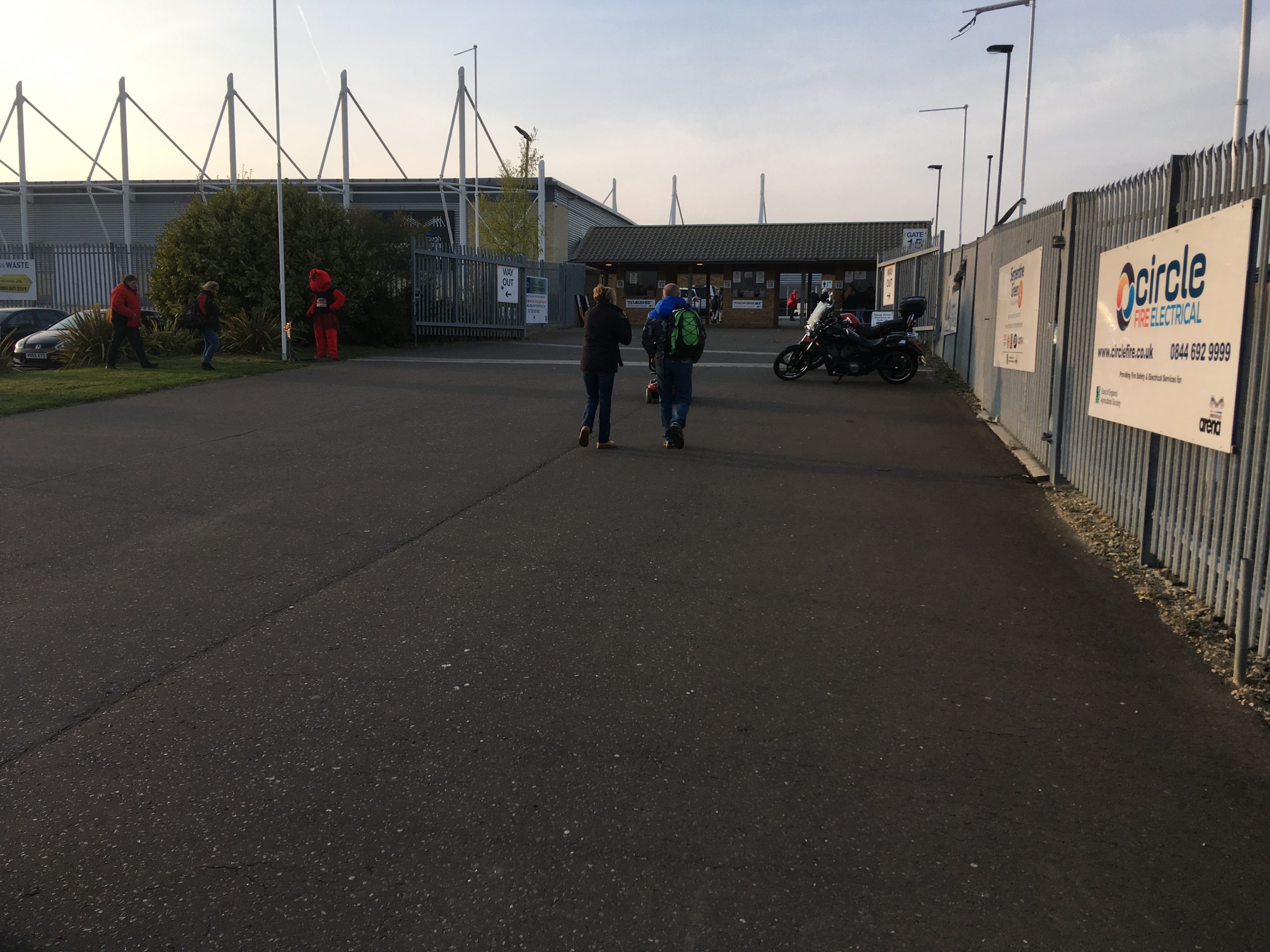
Central Match Ticket System
Travelled from Redcar to Poole only for it to be rained off? Never mind, you can redeem your BSL purchase at a Redcar home match!
All British Speedway League Club Membership members get issued a club membership card. You can use the card to gain access to your home track and any other track in the country. Members who use their club card every week can build up loyalty points which, can be used for rewards such as free entry to away fixtures or a discounted home ticket. This way, we can encourage seasoned veterans and new faces to explore other tracks in their area.
One thing to remember at this stage, it's all about encouraging more people through the turnstiles. We will likely see a shortfall in income due to the initial discounts. However, the added value given to supporters will see attendances rise through referral marketing, one of the most substantial and natural resources available to promotors.
You could put all sorts of benefit schemes in place to encourage loyalty. For example, if you attended ten speedway matches, you can enter one match at any OTHER TRACK for £5 or attend your local club for £10! Use it to discover what else is out there. If you're a Wolverhampton faithful, you can redeem your voucher for a £5 ticket entry to check out Leicester or Birmingham.
The great thing about this is the rewards can be vast, but it doesn't have to replace cash and card on the turnstiles. If the older supporters want to pay their money and go, let them! We can give them leaflets explaining the benefits of BSL Club, but ultimately, we don't want to overcomplicate their experience. A confused mind doesn't buy.
Suppose BSL can offset the risk of losing your money to rain off's or other unforeseen abandonments. With the central system in place, we can encourage more advance ticket purchases, especially if travelling fans have the safety net of redeeming their credit at a home match due to cancellation.
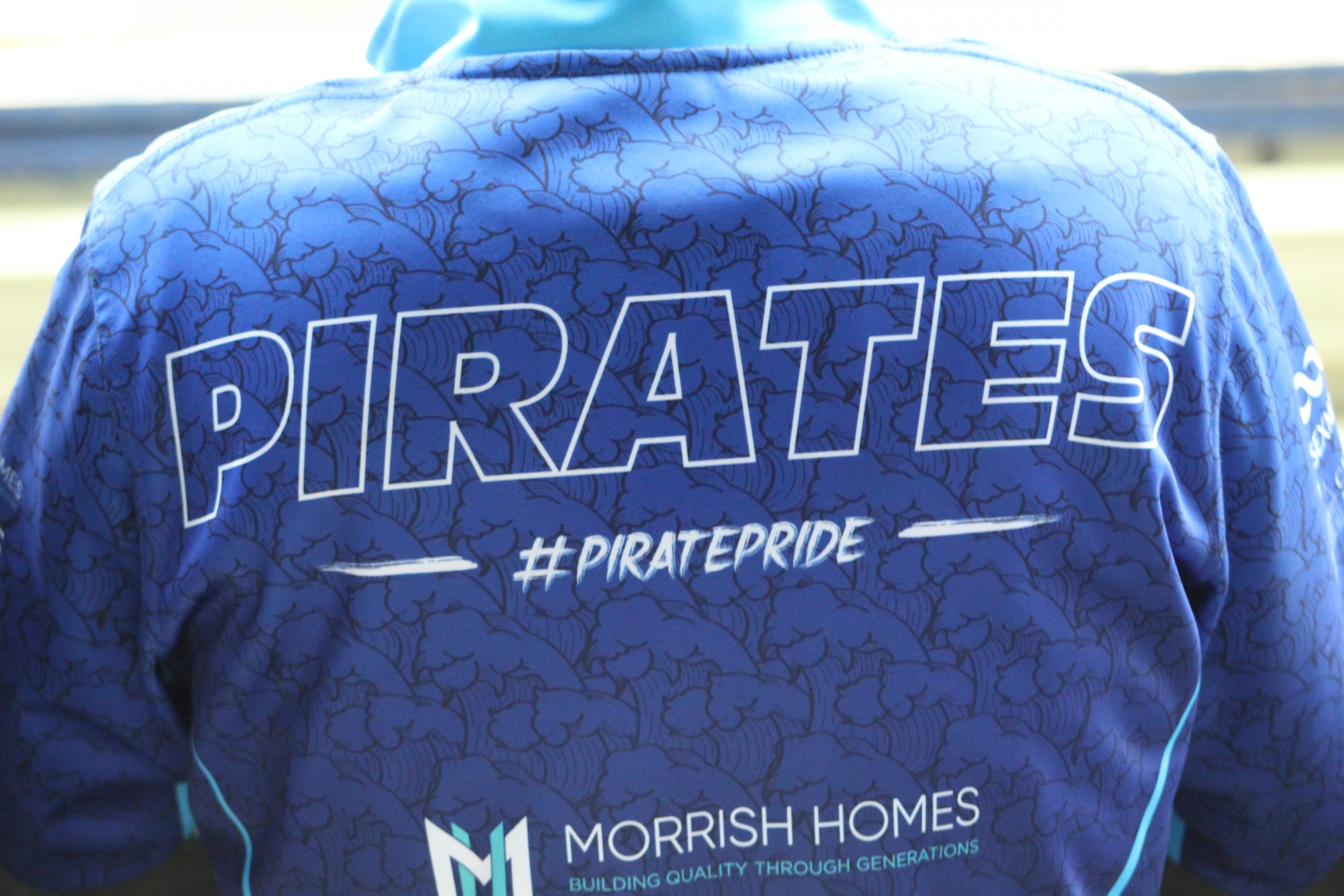
BSL Club Shop
Allow all the clubs within the league to sell their merchandise through the BSL website. The system can also include Speedway GP and individual riders merchandise if promotions can make a deal beneficial to British Speedway. It's a system that works tremendously well in the USA's NFL. If all your speedway gift needs are in one place, the sport's chances of sale and direct profit increase for speedway. You could sell the usual things like shirts, hoodies, hats, but you can expand that range to BSL club ties, handcuffs, jewellery, phone cases, signed goggles or race jackets. There's a market for this stuff which you can see if you look on places like eBay. Why not capitalise on it for the direct benefit of the tracks.
Plus, fans can keep building their loyalty points. Again, this doesn't have to replace individual club shops, but it will require the respective clubs to either hand over merchandise needs to BSL or work closely with them. Buying power with BSL will increase through the central procurement resources. They'll be able to negotiate better supply costs for merchandise and, in turn, sell the products to the fans at affordable rates.
We could also start offering clubs matchday programs through digital platforms. It won't replace the physical copies bought at the track but gives an alternative option to new fans with a low distribution cost.
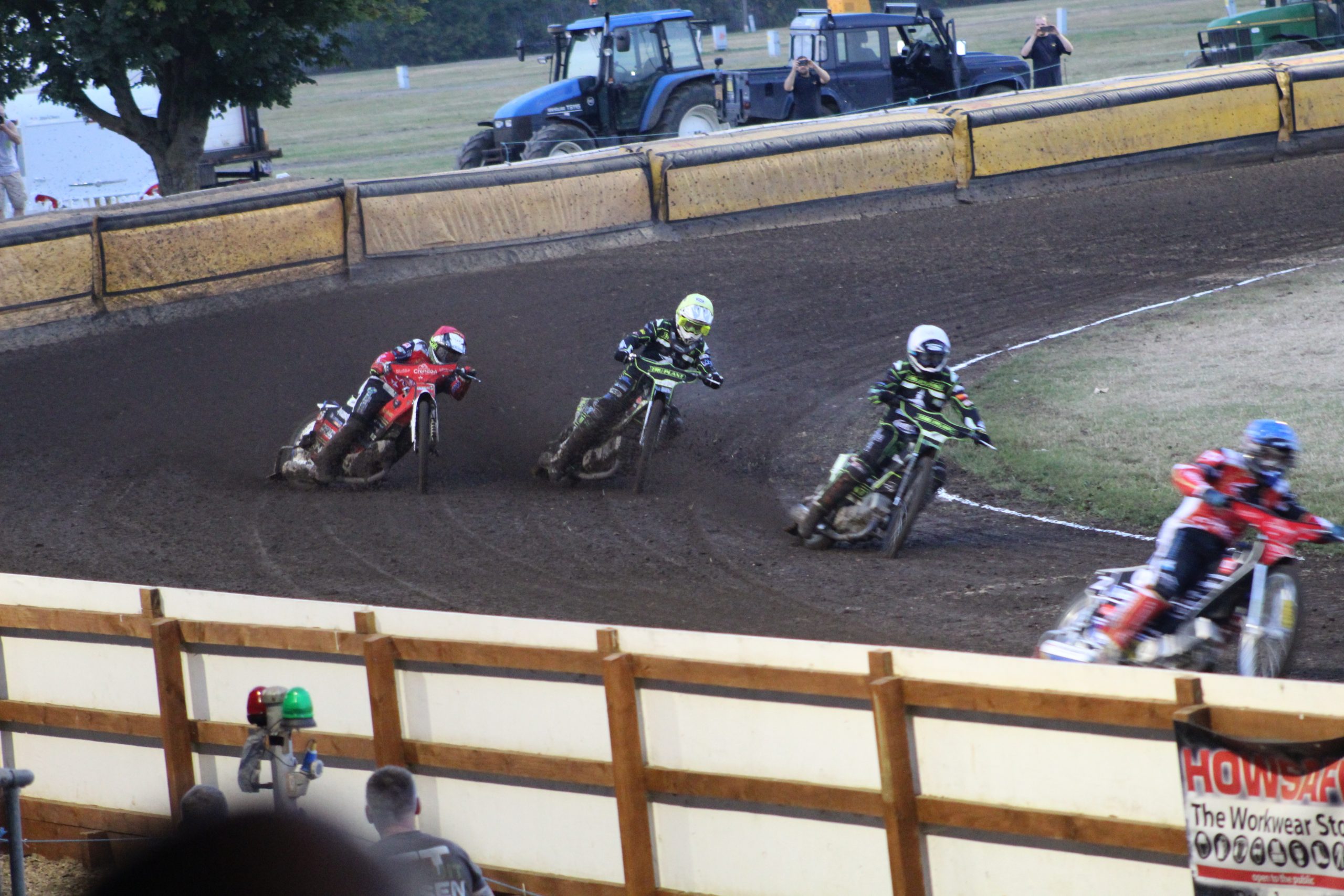
There are many fantastic benefits for fans just for signing up, but we could offer even more incentives for people who sign up for British Speedway League Club Premium. Here are some examples of what could be done for premium members.
- Get early access to match highlights (ahead of public release on public platforms like Vimeo and YouTube.
- Discounts on match tickets and programmes
- Annual membership packs - Including things like a pin badge, annual booklet with the fixtures and team line ups, a British League program board, Car Sticker etc.
- You could partner with Speedway Star and create a joint membership, the possibilities are vast.
- BSL Annual aimed at younger supporters, with rider profiles, history, full-colour images. Crosswords, paint by numbers, colouring, all that good stuff.
- Potential for a central streaming service, pay per view for full matches or allow premium members access to some live streams, promoting the service even more.
- Keep live speedway on TV, interlace the youth races with the central meetings, keep the crowd entertained and give the TV coverage time to do interviews and ads.
- Put together a weekly speedway highlights package, covering every match with two riders giving their opinion to a head anchor, for example, someone like Steve Brandon.
Speedway Live Streaming
- We would need buy-in from the companies filming the league matches to work—Clean Cut Sports, Speedway Portal, Re Run Videos etc.
- We want BSL members to have access to digital streaming of matches and the license carriers for each venue to commit to highlights packages after EVERY MATCH. We don't just want to see single camera angle video footage of the racing. We want to see an exciting collection of shots from multiple angles, action in the pits, and the crowd's reaction. Show us something that will keep us interested alongside the action on the track.
- Make the highlight packages available within one day for members on the BSL Portal and three days to the general public.
The International Test Stream was £14.99 from Glasgow; this gives you an idea of the current value placed on speedway from promotions.
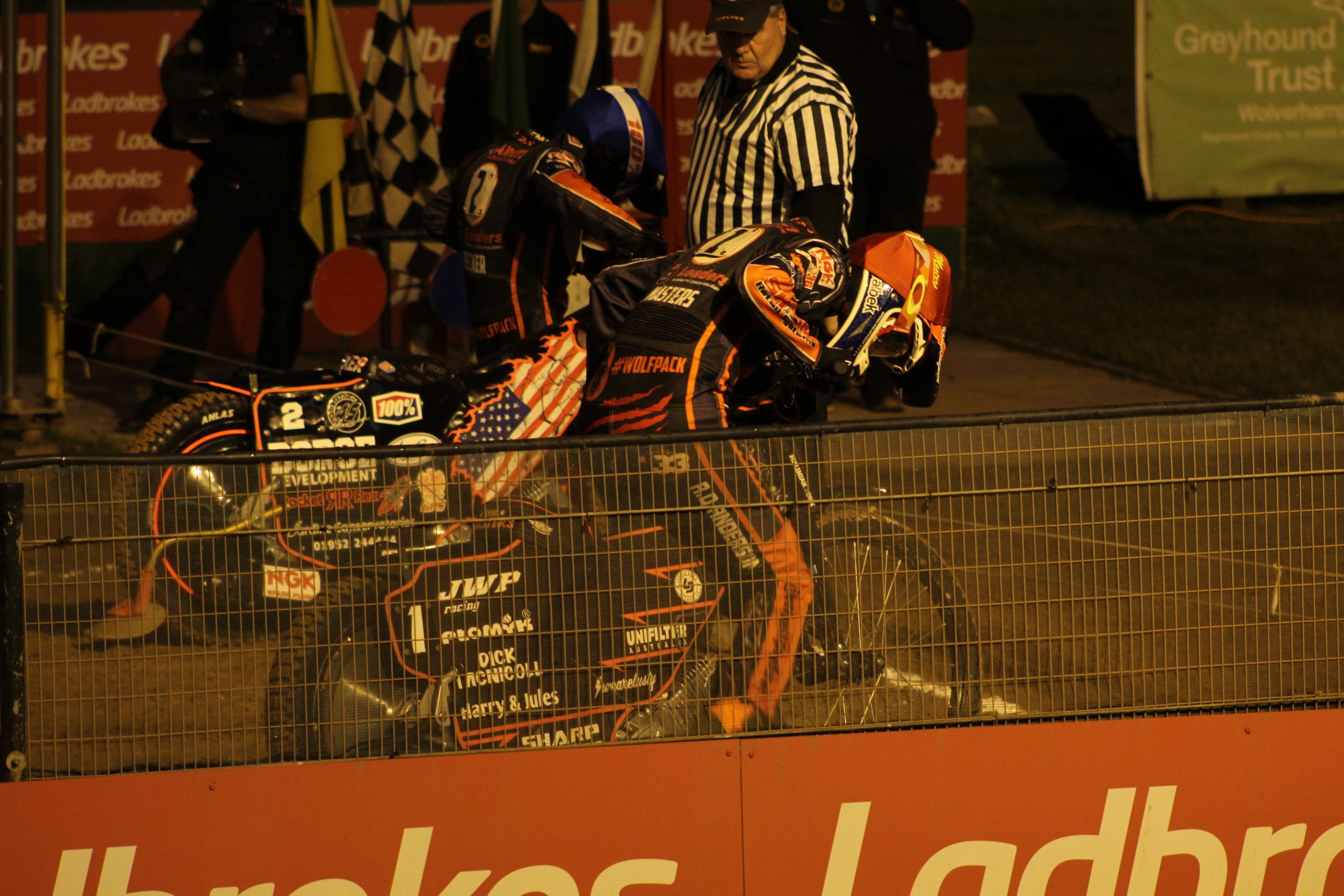
I've mentioned loyalty points and rewards multiple times. It's a key part of building the fanbase and retaining new fans. When marketing is discussed, it's often referring to new customers, but maintaining your current fanbase and extending from within is far cheaper and more cost efficient. Members can earn loyalty Points through;
- Regular Attendance of your Local Track
- Regular attendance of other Tracks
- Merchandise Purchase
- Live stream Purchases
- Social Media Interaction
- Competitions
Bringing the Fan-base Together
The BSL Club can bring our fan-base together through a centrally managed system, giving promoters the ability to access all the fans with promotions, news and event details. Promotors could give reward vouchers to volunteers at the tracks, the lifeblood of the sport, with credit on their memberships to use on merchandise or tickets for away trips. We could put a referral scheme in place once the platform is established. Referral marketing is the most efficient type of marketing out there. Entire businesses are built using this system. It's cheap, easy to use, and provides supporters with an easy way to recommend the sport to their friends and family.
We all support our teams, but most of us support the sport just as much, if not more! The British Speedway League club will be the place to go if you're a speedway fan in the UK.
Improving the Sport
Current Issues in Speedway
Improving the Sport Part 1
In Part 1 we'll be looking at the British Speedway League's Structure, Governing and administration System.
Introduction
If you haven't looked at it yet, then you need to read the 'Current Issues' section of our Future of British Speedway series. Otherwise, some of the explanations in this section might not make sense. There have been many suggestions on repairing the sport, some good, some not so much. What we all agree on is changes need to be made to the fundamental way Speedway is operated.
The suggestions in this article will need the sport to change drastically behind the scenes. However, very little will need to switch on the track itself. It will also take a massive commitment from everyone involved. It's not a short-term fix. We are looking at the long-term future of Speedway in the UK.
We may lose a few hardcore fans in the short term, but the long-term must take precedence if Speedway is to not only survive but thrive.
We've seen cricket revolutionise the sports following with the 100 series and 20/20 cricket. We've seen Ice Hockey turn their fortunes around through the essential matchday experience envisioned by Sheffield Stealers owner Tony Smith, pulling in average crowds of 7'000 per game.
Speedway needs to change, but it doesn't need to start from scratch. Ice Hockey and Cricket are essentially the same game but presented and managed differently.
British Speedway has found itself in a new position in the European market. It's no longer the place for world championship riders and isn't an essential part of aspiring world champions CVs. For years now, we have been resisting the gradual shift of our position within the world speedway marketplace. Maybe it's time to embrace it, not fight it.
We need to create a speedway experience that attracts fans, sponsors and the media. If we concentrate on the foundations of our house, we can then build the sport into a place where world champions feel compelled to ride once again.
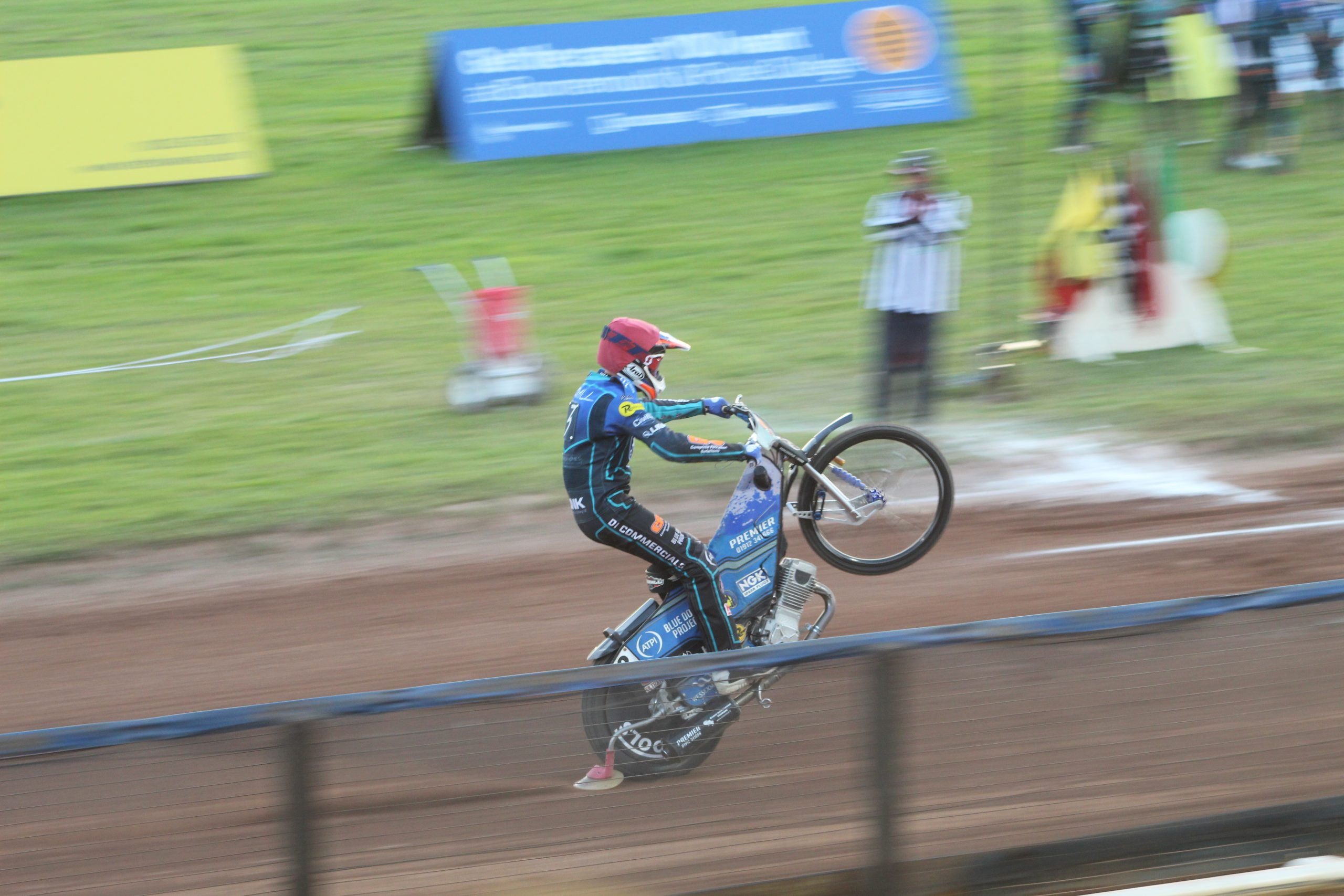
We're not just talking about changing the leagues' names here, a new logo, different race format. We need a complete overhaul of the way Speedway is managed and published. Gone will be the win at all costs attitude of any rogue individual, invariably leading to poor decisions for Speedway as a sport and entertainment. We can see droplets of progress in Speedway today, but it needs more vision and direction.
Central Administration
British Speedway is the culmination of 18 (at the time of writing) different single entities pulling in different directions. I'm suggesting we change all that with a central administration. One business, shared between all the club owners, operates as one powerful unit in a collective bargaining agreement. The National Revenue and Local Revenue system isn't anything new. You can see a live example in the United States by looking at the NFL.
I'm not going to over-explain this because it gets very complicated (setting it up). In essence, each club will become owned by The British Speedway League, and the owners will own shares in the business according to what each club brings to the table, the promotors investment.
All rider ownership within the UK become part of the British Speedway League. Again initial ownership is compensated with a higher percentage of the company share for each promotor.
This British Speedway League, as a business, becomes responsible for all teams within its custodianship. A central admin team handles most administration needs. British Speedway League is as strong as its most vital member and as weak as its weakest members.
With this part briefly explained, we need to install a new structure that can take the sport forwards.
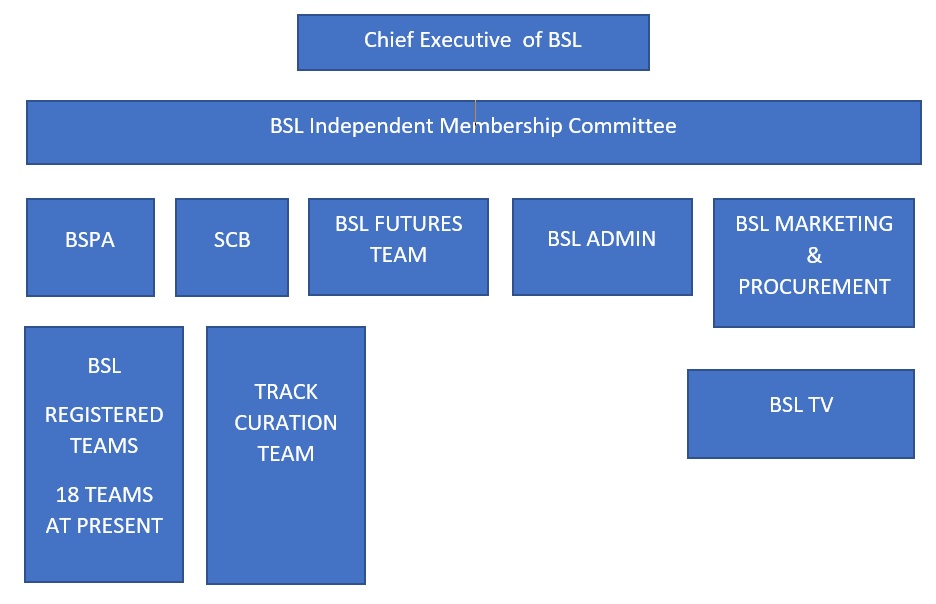
Structure Overview
Chief Executive of British Speedway League
Speedway has gone stale. Everybody involved with the sport loves the sport with a passion, and that has become a problem. We all believe so passionately that the product is perfect that we are reluctant to make changes. We tinker with rules and move the goalposts but ultimately, nothing significant changes. Every winter we do the dance, each spring, we turn out programme boards at the ready.
Fresh blood with a healthy sized black book of contacts (and cheque book preferably) needs to come in and take the sport by the forwards, a new approach breaking the conventions we've all got comfortable with. It can't be anybody though, we don't want to throw the baby out with the bathwater, but we do need someone who's not afraid to make the difficult decisions.
In the Speedway Star back in 2019, Peter Oakes mentioned people like Scott Field, Director of Communication at the British Olympic Association, Ann Webber, who masterminded Marks career behind the scenes. Ian Sinderson, Group Chief Finance Officer of ATPI Limited (Formely Director of their sports division).
Independent Membership Committee (IMC)
The chief executive will put together an independent group of individuals who can make decisions and adjudicate on all issues that arise on track and off. We can't legitimately claim that decisions don't have any biases if promoters of the current club solely make decisions. Let's be clear, most of the accusations about bias are unwarranted, but the constant promise of transparency behind decisions has failed to materialise. Issues are referred to the committee, making the necessary decisions and publishing their findings. The previously mentioned names for the Chief Executive position could also be good shouts for roles in this set-up.
The remaining committee members can be made up of one member from the BSPA to advise but have no vote, representing the club's interests, a representative from the riders again to inform, and one from the British Speedway League Club to represent the supporters, which, I'll come on to shortly.
BSL Future Team
Head of BSL Development
Cricket and Ice Hockey. 2 sports which have been on their knees and bounced back; how? The futures team will be responsible for going undercover in other sports, seeing what works and why, understanding the mechanics and moving parts, and bringing ideas back to the committee.
We'll be looking to explore all avenues with the end goal to diversify the current engaged demographic in the sport. We want to see new faces, a vibrant community of youngsters enjoying the sport. Fresh ideas from other sports are needed to freshen it up, akin to the Cricket model.
They'll also be engaging with councils and committee's at potential venues to see where we can bring Speedway back, especially in places where there was once an established following. Exeter, Hull and Long Eaton, for example. They'll be looking at how we can strengthen Speedway's stronghold venues and begin planning for the expansion of Speedway in the UK.
BSL Marketing & Procurement Team
Head of BSL Procurement
BSL Marketing Manager
Head of BSL Social Media
Together we a stronger. It's a motto I use in my work all the time. As individuals, we are all doing our own thing and pulling resources from our contact books. What about if we pull our resources out of 100 contact books instead?
The Marketing and Procurement team will be responsible for advertising the sport, bringing in significant sponsorship, purchasing on behalf of the clubs for materials such as uniforms for staff and shale for tracks.
The marketing team will take ownership of all social media through an appointed Social Media Manager. You could outsource this job, put in the long term we want to keep overheads down, so we want to plan for this to come in-house. This team will use targeted advertising campaigns for areas where tracks are located, going after specific demographics depending on what fixtures are coming up for each circuit.
BSL Administration Team
Following on from the previous group, the admin team continue with the idea of central resourcing for the clubs to access. The admin team will be responsible for;
- Club Press Releases
- Social Media Posts
- Club Banking
- Club Accounting
- Programme Publishing
- Communication with Sponsors
- BSL Club Membership (I'll Explain this Later)
- Riders Pay
- Dealing with Stadium Administrative Duties on behalf of Promotors
We can free promotors time to drive the individual clubs' forwards and offer a regulated point of contract for pay discrepancies, deadlines and banking formalities.
Improving the Sport
Current Issues in Speedway
Current Issues Part 4
Covering Running Costs, British Youth & the Rider Skill Gap, Central Governance. This is Part 4 of 4 looking at Current Issues.
Running Costs
I'm only going to briefly graze over this because I could make a whole report just on this topic because of how complex it is. I'm also conscious not to share confidential information, so I won't be sharing figures.
Workington Comets reinforced the real and counter-intuitive lesson that British Speedway hasn't learnt, success comes at a price; that price could even be closure. We touched on inflation and the economy when we talked about admission prices, but we didn't discuss operational costs. Running a speedway team costs more now than ever. The money coming in is getting lower, and the money going out is getting higher.
The bikes in Speedway have evolved into something completely different to what was on the tracks in the 1970s. The engines have changed into highly tuned rockets with high outlaying costs and persistent tuning requirements. Gone are the days when a rider could be part-time, treating Speedway almost as a hobby whilst having a day job to supplement their racing careers.
Riders at the top level make good money, but riders at the bottom end barely getting by. This year, Nathan Grieves quit the sport with scarcely a penny to show for the broken bones, late nights in the workshop or driving across the country at the dead of night. Despite this, the rising equipment cost means the riders pay requirements to go up, promoter cost on riders goes up, but the income level from sponsorship and attendances hasn't increased to support it.
Riders being part-time in the National League is fine, but if we want British Speedway to remain a professional feature, we need full-time professional riders. If the riders are going to be full-time, they need assurances that their income won't disappear overnight because they've been dropped or injured. Yes, professional sport is generally a tricky business, but the sacrifices we ask of these warriors and the risks they take far outweigh that of any other sport I know. Riders do it because they love it, not for entertainment value, but that doesn't mean they shouldn't be paid for their efforts.
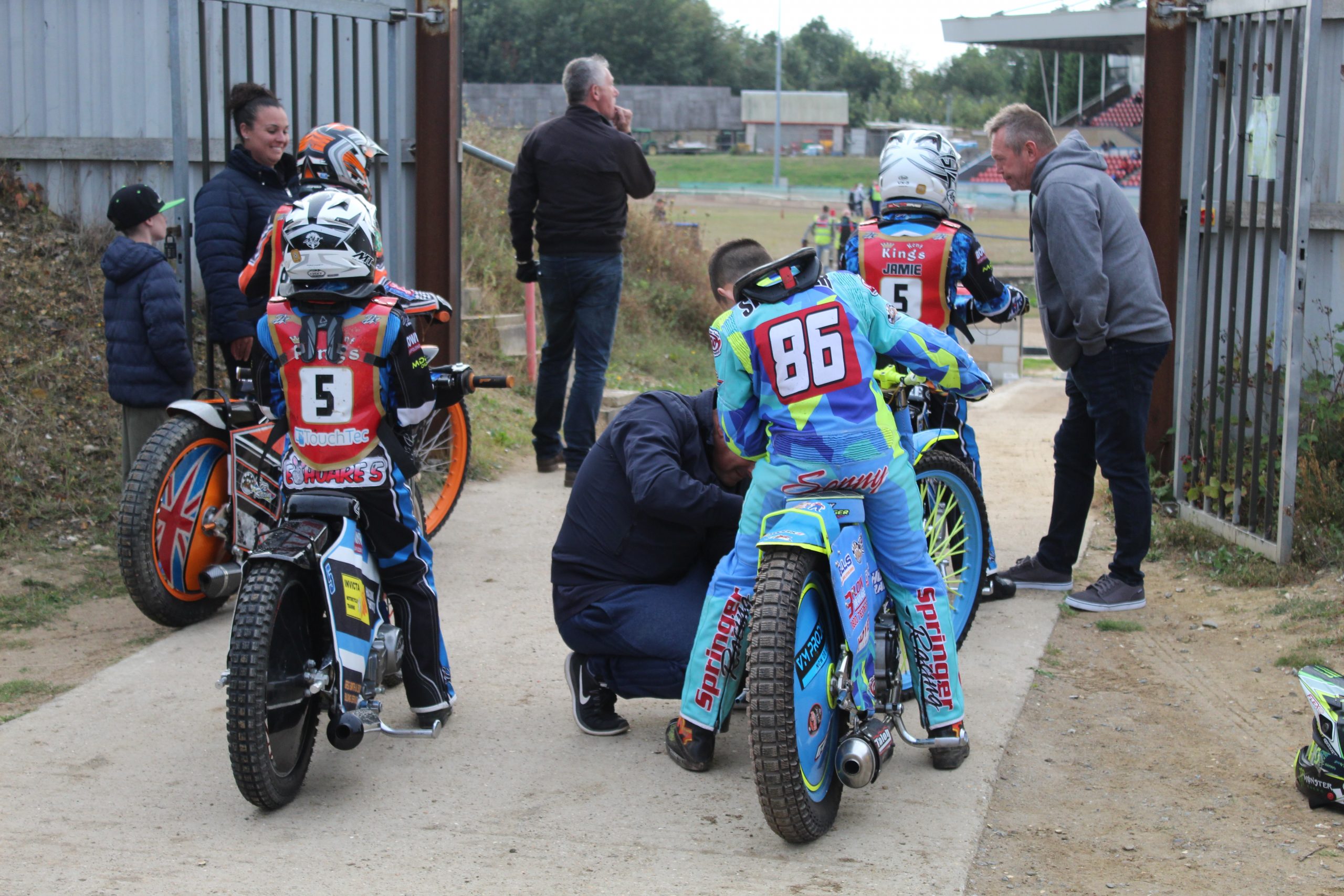
British Youth and the Rider Skill Gap
Great Britain has some fantastic talent amongst its roster of riders. The progress Team GB's set-up made was vindicated by the stunning performance at Belle Vue, lifting the World Pairs trophy despite losing three times world champion Tai Woffinden to injury. However, this doesn't mask that the progress chain for British youth within the British League is unclear and sometimes unforgiving.
We talked about the rider skill gab when we covered doubling up. It's not a brand-new issue for Speedway. In the 1970s, it wasn't uncommon to see a lowly junior role up to tapes with Ivan Mauger. The skill gap has become a prevalent issue, though. There was an attempt to fast track riders into the top league when the BSPA changed the race-card format and essentially had National League riders at reserve. However, the gulf in quality between the main body Elite League teams and reserves was huge. The skill gap runs the risk of having riders with good potential quitting too early because the professional rides are too strong for them.
There was a time when using a team's number 8 or even number 9 wasn't unrealistic. The gradual phasing out of second halves led to the widening skill gap between league standard reserves and juniors. Inevitably, British youth isn't up to standard when a rider in the league gets injured or isn't available, so we look abroad. In 2021, it would be unthinkable to use a national league rider in place of the main body professional even in the championship because the gulf in class is too severe. It is hard to pinpoint precisely when the problem started, the demise of the Second Division or British League, the introduction of foreign riders into the National League 1980s. Again, you could make an entire video on this subject.
In 2021, Great Britain is a launchpad for riders to develop their careers before progressing to international standard competition in Sweden or the pinnacle of team competition in Poland.
How do you get young talent interested in riding a speedway bike for fun or professionally? It's a problem Discovery spotted as soon as they looked at Speedway GP. The naturally dangerous nature of the sport makes it more difficult to entice new blood, especially people outside the motorsport's environment. Football and Rugby might have certain risks associated with them, but it's not comparable to Speedway or Motocross in the eyes of many. For every success story within the sport, a significant injury will go viral, public perception again not helping our corner.
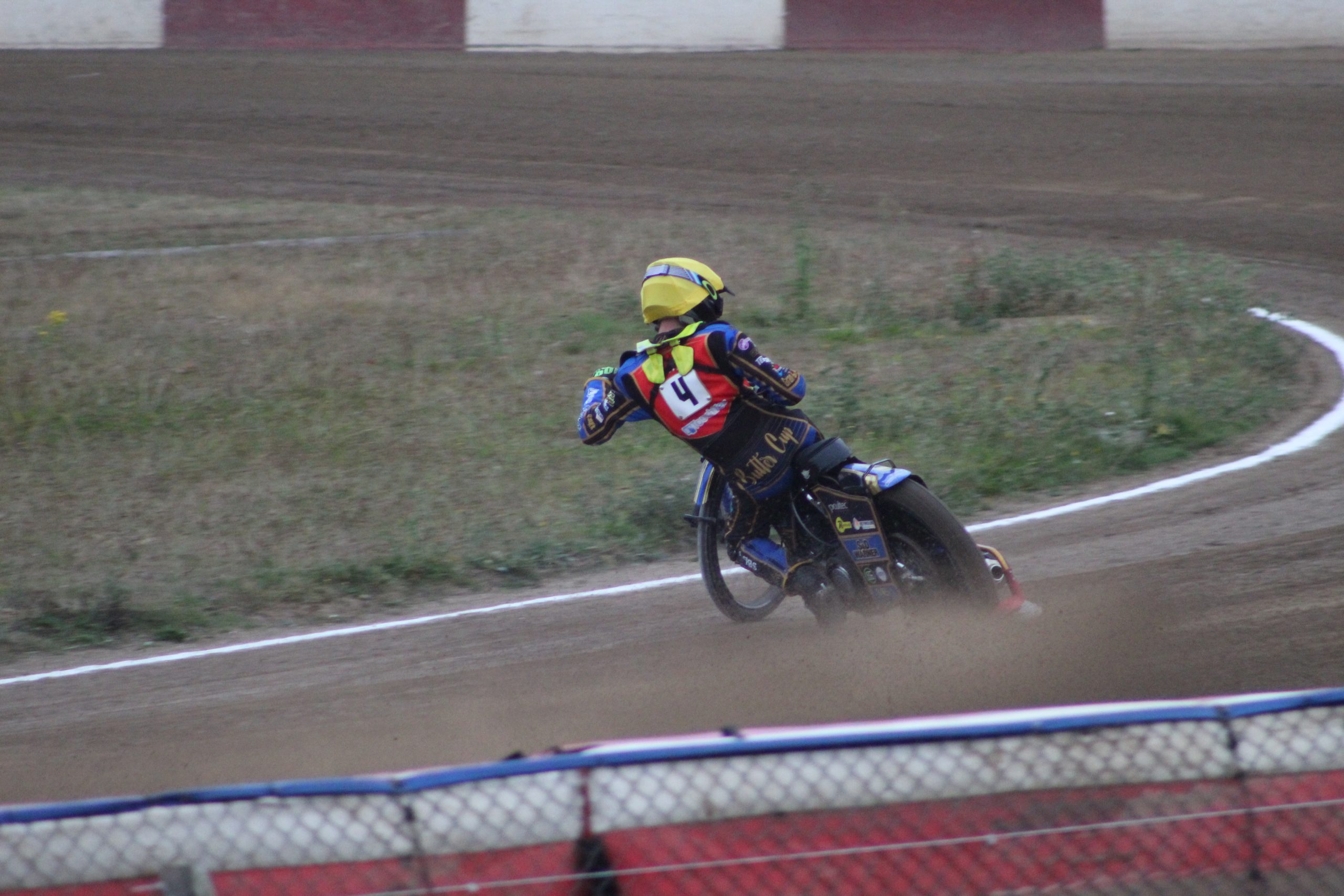
There is a community of amateur riders below the national league set up who staged regular weekend fixtures. I never understood why the SGB haven't gotten involved and offered more support to amateur clubs. Just recently, Southern Track Riders, an establishment with over 20 years of presence in British Speedway, disappeared overnight. All the families connected to the club and, by association, the sport went with it.
We need to have a clear pathway to become a professional speedway rider for the outsider looking in. What training programs are there, and where are they held? How much will they learn if a rider turns up to a Sunday practice with no professional presence? I can personally recall Ulrich Ostergaard at Rye House taking the time to chat with me and give tips on riding style and adjusting my bike to help me navigate the corners. On another occasion, Alan Mogridge at Scunthorpe, who was there with his son, gave me a simple piece of advice, put your left leg on the peg when you don't need it to save energy on the straights, simple but hugely effective.
Team GB and the associated training programs are fantastic for riders established as career speedway riders. We need to turn our attention to newcomers and nurse them through to the Team GB programs already in place.
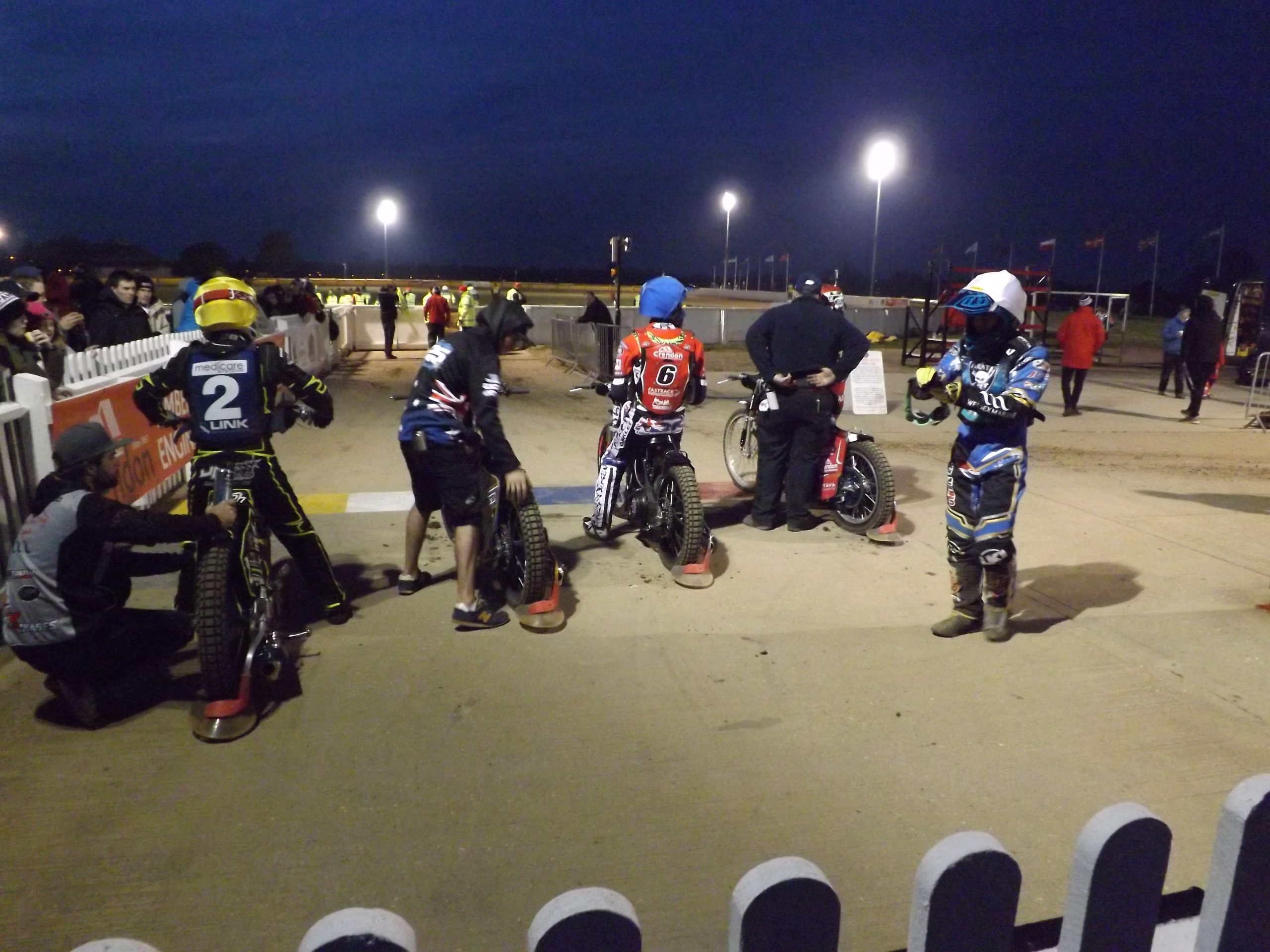
Central Governance
Promoters in Speedway often pick up the most criticism from supporters. If you think about it, promoting a speedway team is the most unforgiving position within British Speedway right now. When things go wrong, they get the blame, sometimes rightly, but often they are the object of frustration within the fan base.
Often decisions are made which, from the outside, make little sense with no explanation. The club owners set the rules, sometimes unevenly. We often hear stories of laws being changed to suit certain clubs or riders or inconsistent decisions. This year there was a great example with Redcar's visit to Birmingham. The matches start was delayed due to issues with the track. Then a horror crash resulted in a delay due to rider injury. The match was eventually abandoned because of the curfew and lack of medical cover. The result was not declared as only nine heats had been ridden. Birmingham got a second bite of the cherry and thrashed the bears 55-35 on the re-staging, despite being 8 points behind when the first fixture was abandoned.
You need to race ten heats to declare a result, I hear you say, so what's the problem? Precedence had been set when Glasgow was previously awarded an away win at Redcar after an abandonment after Heat 9.
Both matches were abandoned due to the curfew and medical cover, the track delay at Birmingham wasting an hour pre-match certainly wasn't Redcar's fault, yet the decision has gone against them this time. No explanation, no justification. That's the decision, if you don't like it, tough.
Speedway governs itself, and this is probably the biggest problem of all. It's hard to prove balanced, unbiased decisions, and there's not enough adaptation to the modern market through external advice.
Let be fair though, many speedway tracks are running right now because of their love of the sport, not because it makes business sense. Rob Grant is the perfect example. He closed the doors at Newcastle because it was no longer sustainable, but he re-opened them because his emotional connection to the sport was so strong, and he felt he owed it to the late Dave Tatum.
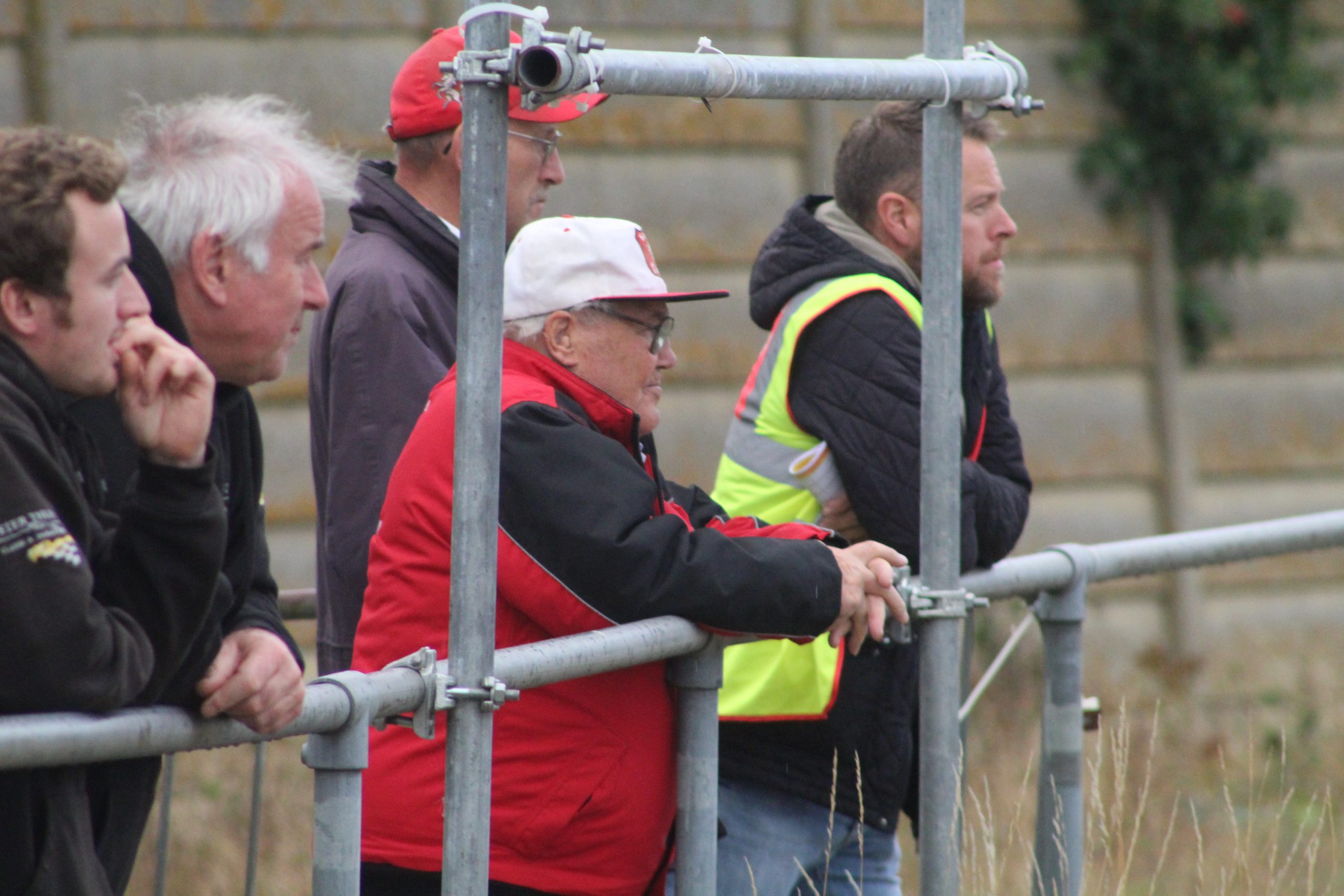
Speedway promotors care so much about Speedway, and perhaps this is one of the problems. Their emotional attachment to the sport means they don't want to change it, they see the product as good enough, and I can't blame them.
Speedway promotion is a thankless, money burning task with no rest bite, they are trying everything they can, but they need support. Promoters are tired, and they want to enjoy their Speedway as much as we do. Many tracks are alive today because of their commitment to the cause. The old saying goes, how do you make a small fortune in Speedway? Start with a large one!
The truth is the future of the sport is in their hands. If change is to happen, it's up to them to make those decisions. Time is running out for the British Speedway. If we are to turn its fortunes around, they'll need to gamble on something different. Cricket managed it, Ice Hockey Manged it, I'm sure Speedway can.

Closing Thoughts
We need to restore confidence amongst the faithful fans in the sport. If we get the fans onside, and the hard part is done. Slowly changes are occurring, and Speedway is far from dead. As a pure product, it has enough to be successful. It's the business and practicalities surrounding it that need to change. There are too many variables that can go wrong, and we don't have enough contingencies to manage it. Speedway can and will survive, and eventually, it will thrive, but we've got a lot of work to do before we get there.
Alternatively, Catch Up with the Current Issues Feature
Current Issues Part 3
In this article we'll be looking at Track Conditions and Admission Prices. This is Part 3 of 4.
The Tracks
Tracks have changed over the years, but the bikes have changed as well. Four-valve laydown engines have led to more power distribution to the back wheel. Lightened flywheels have made bikes more unpredictable, and tracks gradually become slicker to cope with the more powerful machinery. I've watched plenty of older matches on video and online to see tracks have always been inconsistent in Speedway. There's been plenty of times the golden greats of Maugers, Briggs, Fundin, Gunderson, and Nielson rode on total bogs under the guise of 'speedway tracks'.
There's often a perception that longer, wider high-speed tracks create more entertaining racing. You can see where this opinion comes from as most internationals and GP events are on these style tracks. I'd be interested to know how the likes of Bartosz Zmarslik, Artem Laguta and Emil Sayfutdinov would navigate Eastbourne, Plymouth or Edinburgh. I do know that Jason Crump, Tony Rickardsson, Leigh Adams, and Nicki Pedersen could ride these tracks just as aggressively and dominantly as the sweeping European circuits. The small circuits can produce stunning racing without question, but the bigger tracks tend to create more consistent overtaking opportunities. Large tracks alone won't bring fans back, tracks in Sweden are like Poland, but they're also facing challenges with dropping attendances.
Nobody wants to see washing line speedway, but, indeed, British tracks are too often producing substandard surfaces for riders. Too often, we see reports of delays in matches with perfect weather conditions due to the track's state. Too often, we see crashes caused by an issue which can be easy circumvented with the right knowledge and experience.
The 2021 premiership playoffs showed us that if you produce a good racing surface, the riders will perform, lets make matches like this the norm, not the exception.
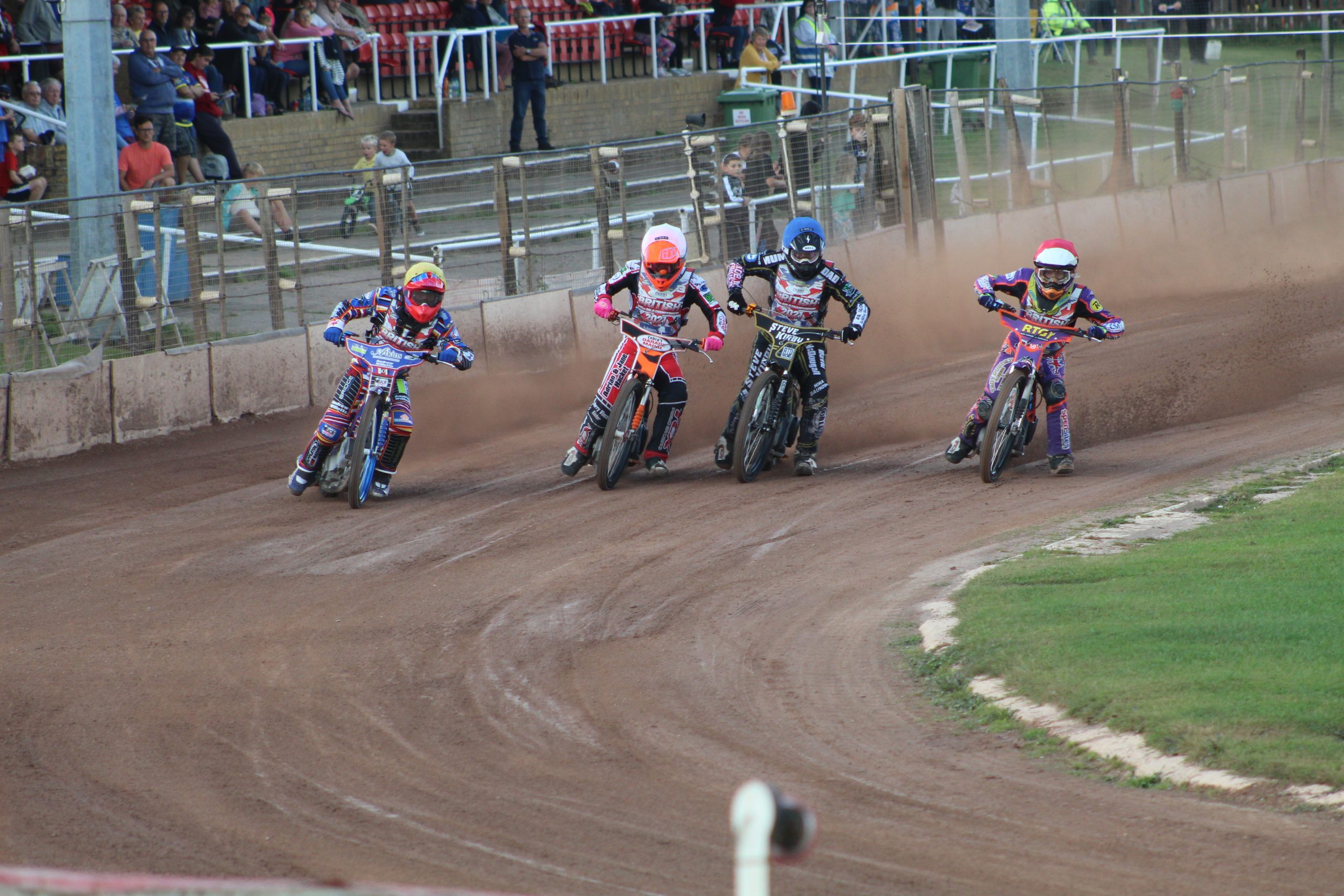
Admission Prices
Admission Costs are often a central part of the debate around the success of Speedway. Is it too expensive? Have the admission prices spiralled out of control; will people choose Speedway over other offerings? We've done a detailed analysis of the figures which, can be found on the website, but here's the introductory overview.
Inflation is on average 2.8% per year. Using the Bank of England's model for inflation, we've calculated that £1 from the year 2000 is worth £1.72 in 2021. This means £10 from 2000 has a value equivalent of £17.21 in today's market.
The average cost of a speedway match in the year 2000 was £10. In 2021 it's £18.50.
After inflation is considered, you're paying around 16% more for Division 1 or 'Premiership' speedway match compared to the year 2000, Division 2 or 'Championship' has risen by '4%'.
The cost of your matchday programme is better value. It's risen from an average of £1.80 to £3. Even if your programme cost £2 in 2000, you would expect to pay £3.44 in 2021 based on inflation.
One other thing worth mentioning is we haven't included the Isle of WIghts Dirt Track offering in the price model as we're looking at the British League specificaly. The Isle of Wight is fantastic value at £12 per adult, if you haven't been before go check it out, it's fab!
This is all well and good, but it doesn't account for how much people make in 2021 compared to 2000. The median annual earnings for full-time employees in 2000 was £ 18'848. In 2021, it's £ 31'461. People's income on average, has gone up by 67% across the UK since 2000. I'm looking at the median and not average salaries because the figure isn't affected by high or low wages.
People earn 67% more than they used to in 2000, the price of Speedway has gone up by 85% on average. People are paying about 18% more to watch Speedway than they did in 2000 when considering their earnings.
This is hugely oversimplifying the data as it doesn't account for many variables such as the financial crash, housing markets accelerated growth rate, and demographical factors like age, gender, location, occupation, etc. But it still paints an interesting picture.
How does Speedway compare to other forms of entertainment?
Now I've compared a few different entertainment types to Speedway to see how the cost compares. For the sake of consistency, I've taken prices from 3 areas of the country, Poole, Glasgow and Peterborough.
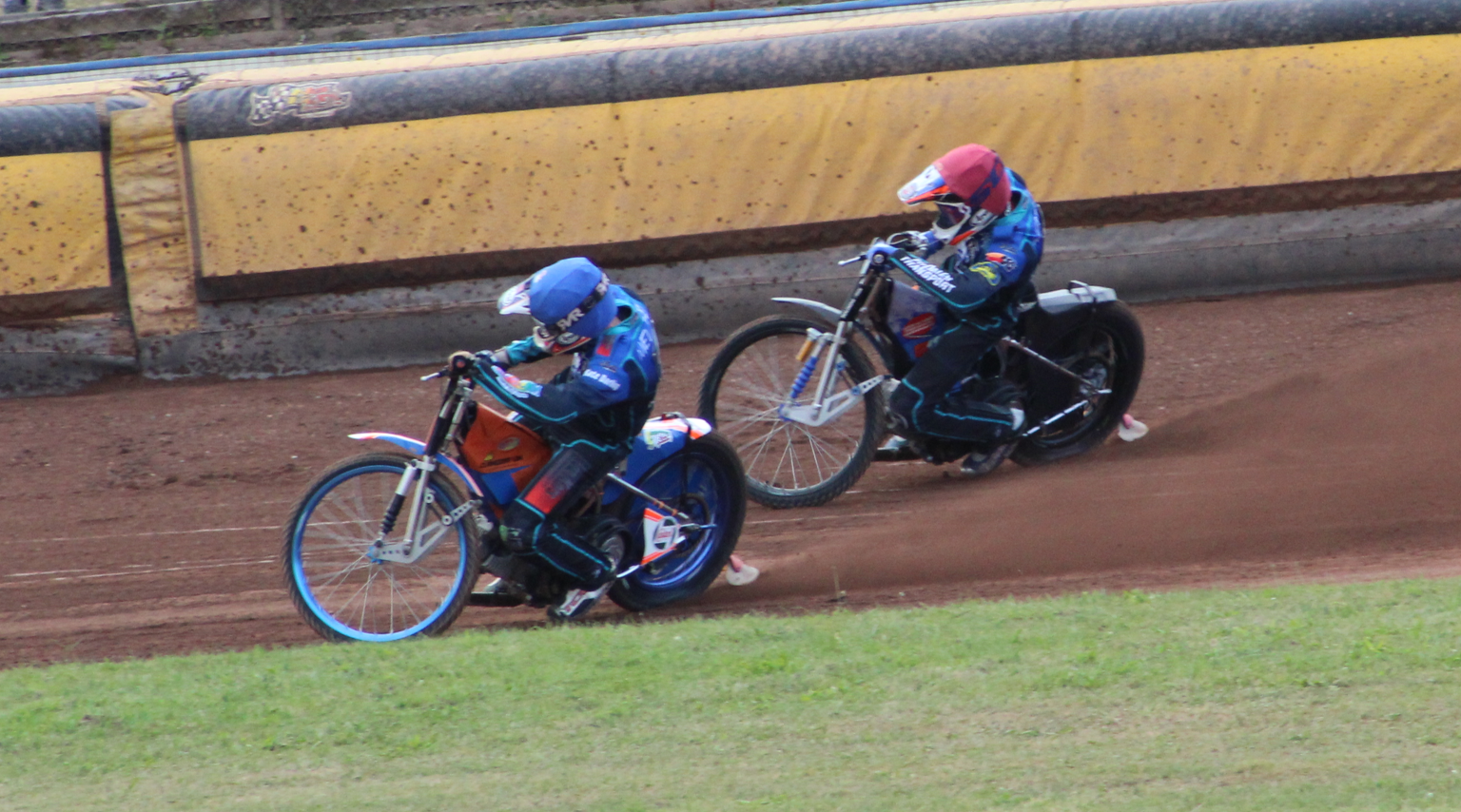
Poole
You'll be paying £9.99 for your adult cinema ticket at Cineworld Poole, £7.99 for students and seniors and £5.99 for children. Hollywood Bowl at Tower Park charges £15.80 for 2 adult games and £12.90 for juniors. The Coastal Comedy club in Poole tickets range from £15 to £19 if you pay in advance or £20 to £25 on the door. Poole Town FC who play in the Southern League Premier Division South or the 7th tier in football, charge £12 for adults, £8 concessions and £5 for U18's and £1 for Under 13. You could drive to Weymouth for so National League football who charge £16-£18 for Adults, £11-13 fo Concessions, Under 19 are £7, Under 16 £4, Under 7's for a £1. Poole Speedway is £17 for Adults; Concessions are £14, Students are £10, Under 16's cost £6 and Under 11 go for free.
Glasgow
Cineworld Glasgow has the same prices structure as Poole. Springfield Quay Bowling Alley you pay £14.40 for 2 games and £11.90 for the kids, the prices at Coatbridge are about the same. The Stand Comedy Club ranges from £10 to £15. Glasgow's 'Old Firm Derby' averages at about £52 per ticket. You can drive down the road to Motherwell, but no Scottish premiership game will cost you less than £20, you can get £5 tickets for kids with a full paying adult at Ross County. Glasgow tigers you'll pay £17 for adults, £10 for Students and Children under 17, Under 12's go free. Glasgow does offer a family ticket at £44, but I couldn't find further details on what's included.
Peterborough
Showcase Cinema in Peterborough is £11.80 for Adults, Students and Seniors get in for £9.30, Children cost £7.75. Hollywood Bowl charges £14.80 for 2 adult games and £11.90 for juniors. The Cresset's Comedy club will set you back £14.50 per person. If you fancy watching Peterborough United or 'The Posh' in the Championship you'll be paying between £22 and £28 for adults, Seniors are £17 to £23, Under 22's are £13 to £17, Under 18 £9 to £11 and Under 12's go for free. Peterborough Speedway charges £20 for adults, Concessions £18, Children under 16 are £5, and under 5's go free. According to the website, Children under 16 are £8, but I've paid £5 for my daughter every time, so I'll use this figure.
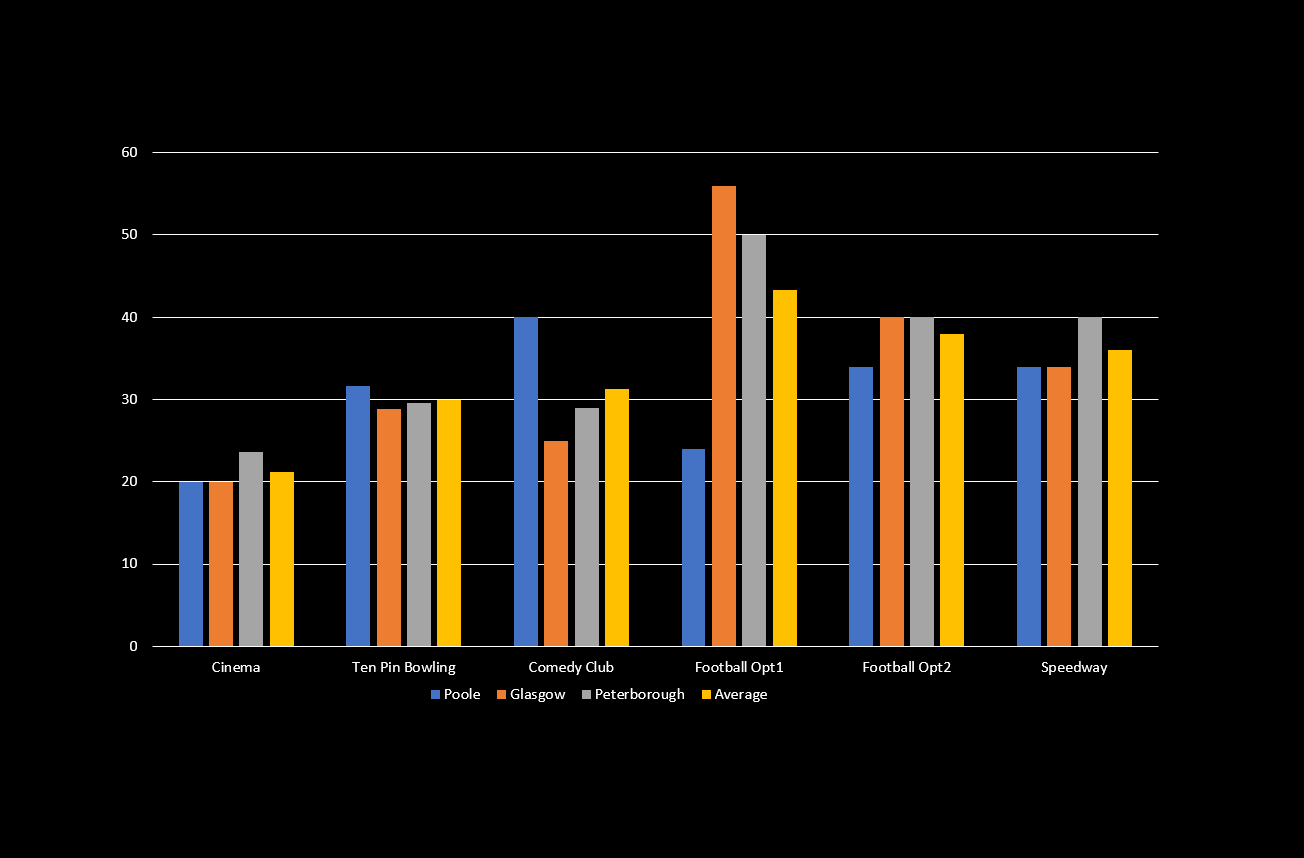
Price Comparison for 2 Adults
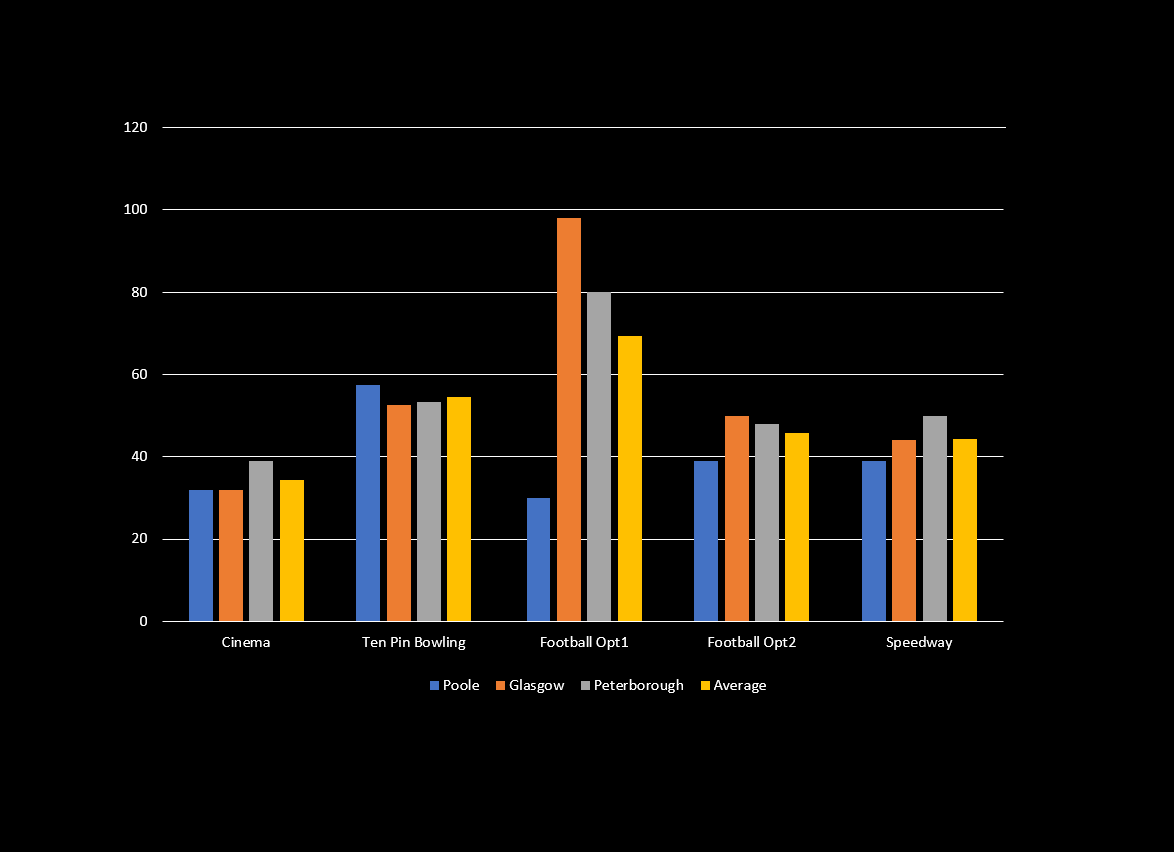
Price Comparison for 2 Adults & 2 Children
One of the keys issues that depicts the picture of spiralling admissions costs is that other entertainment mediums haven't increased in line with inflation. The Cinema for example, has risen by 53% since 2000, Ten Pin Bowling by 55%, Comedy Shows by 61%, all below the inflation rate of 67%. The exception is topflight football which, has increased by 137% since 2000.
One last thing worth looking at is the cost of Polish Speedway.
People often compare the price of British Speedway to Polish Speedway, but they often don't account for the Polish Economy which, is different to the British one.
At the time of recording £1 is worth 5.42 Polish Zloty.
Tickets range from 25 to 75 at Polish Speedway, depending on where you attend, so for comparison sake, we'll say the average is £9.22 per ticket or 50 Zloty.
The Polish Median Salary for full-time employment is £15729.02 in pounds sterling. A Polish Speedway ticket costs 0.058% per cent of your annual Salary.
The Median Salary in the UK is £ 31'461, so a speedway ticket costs 0.058% of an annual salary. We are paying about the same as Poland's fans are, but the Polish get to see the best riders in the world in the most substantial speedway league structure.
Again, this oversimplifies the calculations as it doesn't account for economic flux, disposable income models, etc. Still, it gives you a ballpark idea of how the British model stacks up.
In reality, any product is worth what someone will pay for it. British Speedway needs to understand its target demographic, then price it accordingly.
Current Issues Part 2
Looking at Medical Cover, Rain Off's, Rider's Doubling Up and Guesting for other clubs. This is Part 2 of 4 looking at Current Issues.
Medical Cover
Let's get one thing clear; Speedway is extremely dangerous. In the '40s and '50s, there was a death nearly every year. Norwich's Fir Stadium saw four riders killed in 4 years from track related incidents in the late '40s to early '50s. Speedway has become far safer in the modern age, mainly due to the invention and mandatory implementation of air fences, but it would be prudent for us not to get complacent. The Bikes are much faster, and Rider safety must be Priority one at every speedway match. The medical cover forms a big part of safety criteria.
Crashes at Speedway are an inevitability. All it takes is a rider to clip a wheel at the wrong moment, and carnage ensues even on the safest and most well-prepared track. Now and again, we see a crash that reminds us just how much riders put on the line every time they go out on the circuit. When these crashes do happen, the question is, what happens then. Thankfully, the ambulance does come onto the track most of the time, and the rider can walk back, but occasionally, it's a bit more severe, and the ambulance needs to take the fallen rider to the hospital. The incident is rarely bad enough to abandon the meeting, so how do we keep the crowd engaged when these delays occur? Even better, how do we reduce the delay time without compromising on priority one, rider safety? Delays due to injuries aren't exclusive to Speedway. It happens at British Superbikes, and it happens at MotoGP; it also happens at Motocross.
I went to 20 matches this season, and I encountered lengthy delays at 4 of them out of those. King's Lynn when Rory Schlien was injured, delays at Poole because of a hole on bend 3, delays at Birmingham when Stefan Nelson hit the deck and Isle of Wight when Ruth Holder Smith was injured in a nasty tumble on the straight. None of the crashes I saw was due to conditions, and they were racing incidents. Going on the matches, I attended this season, there's a 20 per cent chance we could have a delay. We know this, but we haven't taken meaningful steps to address the issue to this day.
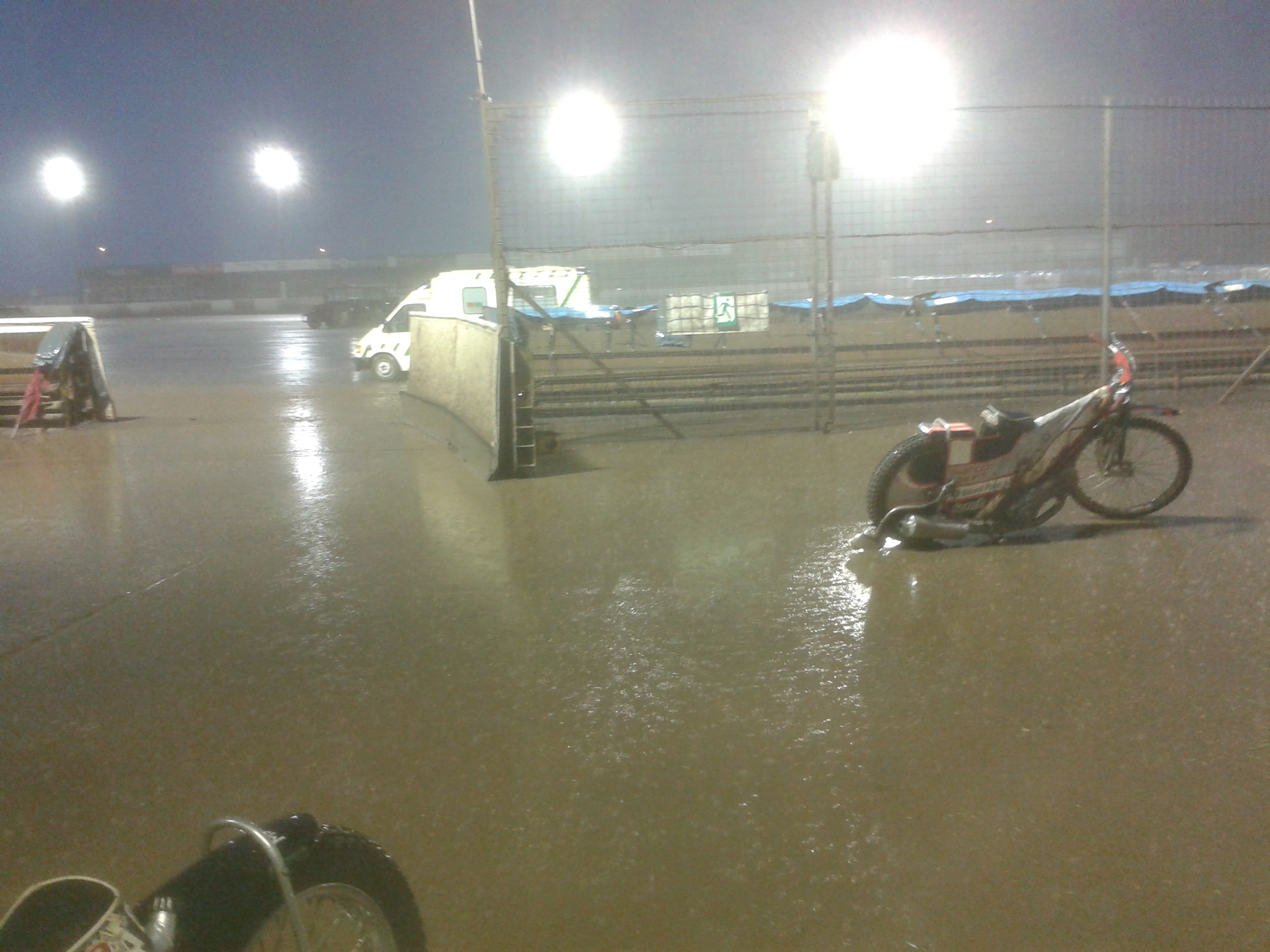
Rain Offs
I'm talking about Speedway in England, and in England, it rains, it rains a lot! Speedway isn't the only sport that's vulnerable to the elements. Lower league football often suffers rain offs and frozen pitches in the winter months. In 2018, the British Moto Grand Prix was rained out, but the best comparison is cricket, as the sport is severely vulnerable to wet weather like Speedway.
Sadly, like to medical cover, this has been a glaring, ever-present issue with no consistent solution across the league. In 2021, 2 of the playoff matches scheduled for tv got postponed due to rain. Consequently, both legs of Belle Vue and Sheffield's playoff matches didn't get screened on TV. The entire season builds up to the playoffs that are designed with TV in mind, and one semi-final didn't get shown! People often complain that Speedway running in October is the issue, and analysis of rain-fall date shows October is by far the wettest month.
The other problem is the considerable toll rain-offs take on the fans, especially travelling supporters. I'm sure every supporter reading this can relate, I made the trip to Leicester v Edinburgh in May only to watch the heavens open, and the track became suitable for jet skiing within 15 minutes. 240-mile round trip to watch the riders walk around the track! That's tame, in comparison to some. The Edinburgh fans also made the trip to Leicester that day. That's a long journey for nothing!
People want an element of certainty when they do things. Especially now, the free time people have and the hobbies they get to follow come at a premium. Providers of modern entertainment must find what brings punters to them. They have to identify what is considered good value by the masses and deliver that, but if they're going to choose Speedway, it has to come with some certainties, certainties it presently can't provide.
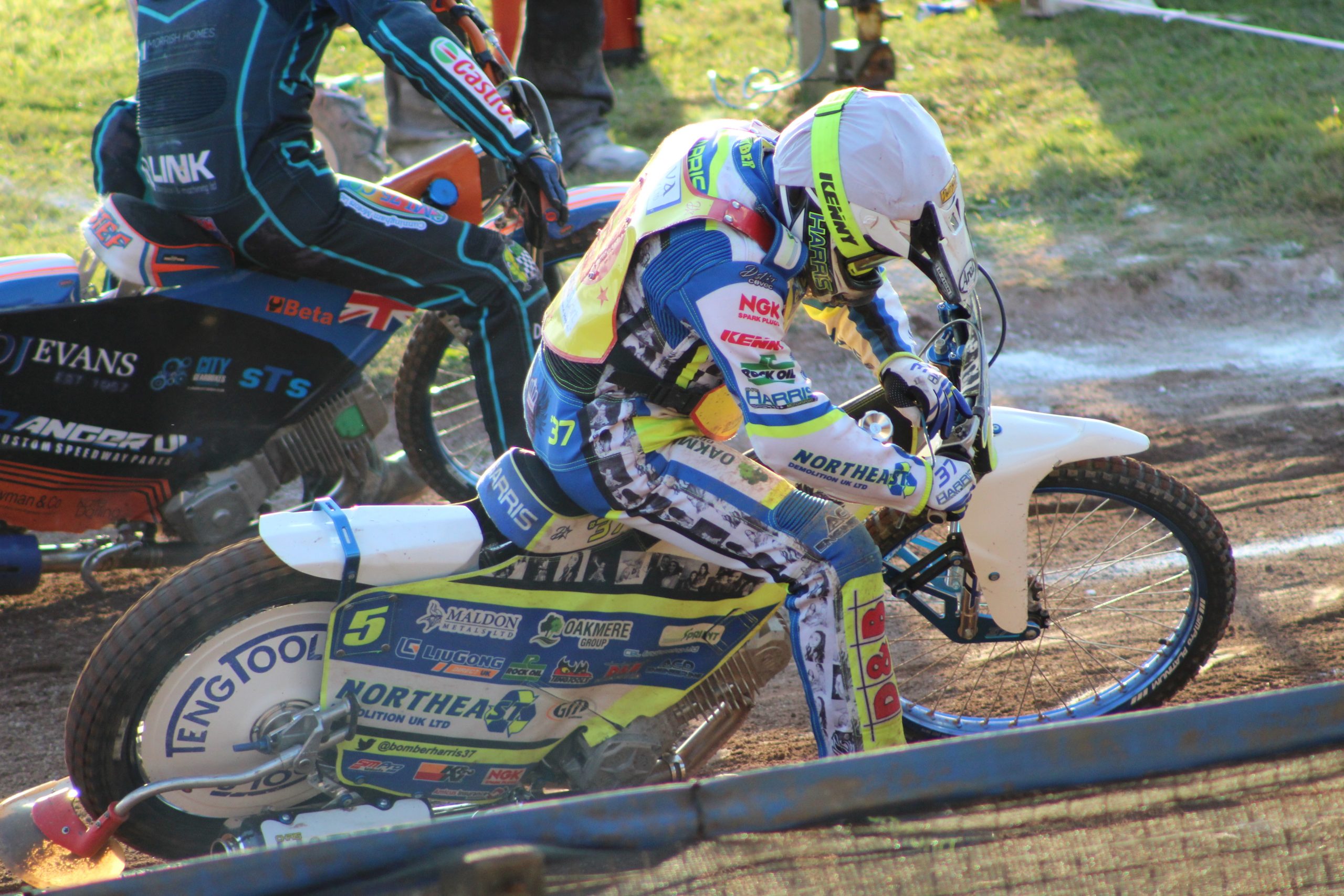
Doubling Up
Rider's Doubling up in the Professional Leagues is possibly the issue fans are most vocal about, and It's understandable. I didn't have an issue with doubling up when it was first introduced, but it's no longer doubling up as time's gone on. It's doubling down, sideways, up, all over the place! The original concept was to give riders more time on the bike to earn a living and fast track their experience path. In the end, we had (and still have) riders representing two professional clubs and a national league side simultaneously.
Speedway has always been a different sport to most. Riders can ride in other leagues across Europe whilst competing in the British League. People generally don't have an issue with riders doubling up with foreign clubs but riding for 2 British clubs is observed differently. Doubling isn't inherently a new issue. In the 1970s, doubling up existed amongst reserves in the top fight, but we didn't have stiff European competition to consider at the time.
Doubling up doesn't have much relevance when marketing the sport to new people trying it out. Still, it's tough to attract new 'fans' when their riders represent two professional teams in Britain. The reality is, doubling up devalues the topflight. The entire premiership-winning team in 2021 represent other sides in the championship. Bjarne Pedersen – Plymouth, Hans Andersen – Leicester, Chris Harris – Birmingham, Scott Nicholls – Kent, Ulrich Ostergaard – Glasgow, Jordan Palin – Scunthorpe & Michael Palm Toft – Redcar. It removes all perceived value from the second division, and it dissolves actual value from the premiership.
The skills gap between Premiership and Championship is no longer present. Added to this, the skill gap between National League and Championship is too high! National Development League heat leaders often struggle in the championship, but they are dominant in the development league because the bar for entry is lower than in the last decade.
I don't for a minute blame the riders. They are making a living from Speedway, most of the riders who double up are still competent riders but either doesn't have the resources or are not at the calibre required for an International league. Doubling with European clubs is seen as an accepted practice and is the best way for the riders to earn the big money they deserve. Be that as it may, If Speedway is to be taken seriously in Britain, we must resolve the issue of doubling up.
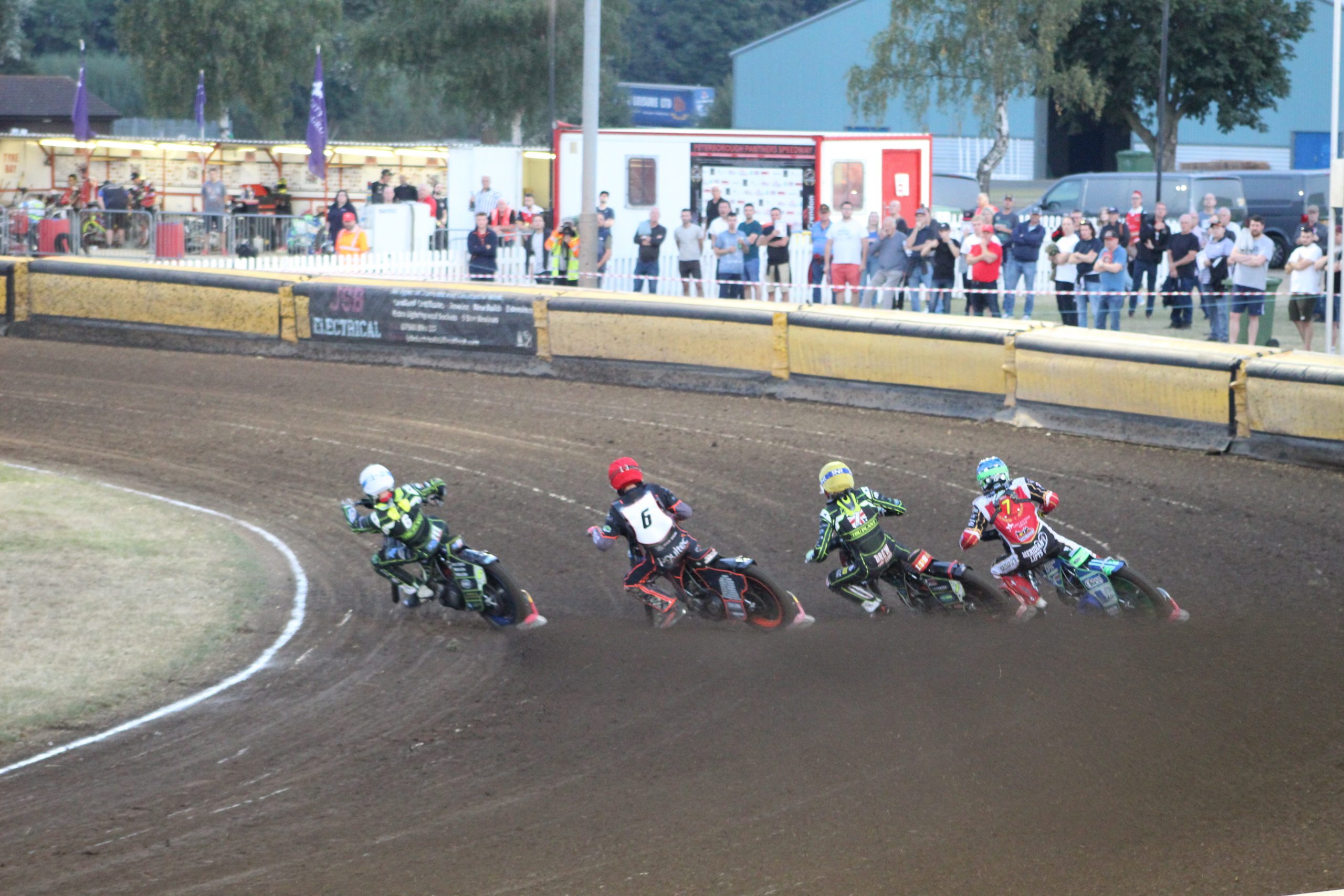
Guest Riders
Guesting is a weird one, and I often feel conflicted about it. On the one hand, I understand the concept as it keeps matches competitive when top riders are missing, whilst giving the guest a chance to earn a few extra quid whilst saving promotors money on squad systems. I probably don't pay as much attention as I should because I've grown up with guests being the norm, so it doesn't stick out as a significant issue. The truth is guests massively undermine the competitiveness of speedway teams. It makes a mockery of fan loyalty towards their riders, making Speedway very hard for people outside its circles to take seriously.
In 2017, I took a friend to the Knockout Cup final at Peterborough who faced Ipswich. Jack Holder was injured for the Panthers so we watched Scott Nicholls guest, and score 12 paid 13 for Peterborough against the Witches in the first leg. The Panther won by 4 points, so we decided to go to Ipswich for the second leg. We then watched Scott Nicholls score 13 for Ipswich against the Panthers in the same final! It completely devalued the final, the Witches drew the home leg, so Peterborough won the Knockout Cup. Scott Nicholls ended up on the losing side even though he was on the other side four days earlier!
If the British League is to be taken seriously amongst general sports aficionados, the 'guest facility' will need looking at, and eventually, phasing out.
Current Issues Part 1
Covering Speedway Exposure to the Public, Professional Image & Presentation, Demographic and Audience Age, Staying Power & Overcomplicating the Rules.
Speedway's Exposure to the Public
There was a time when life was narrower; I mean that the extent of the world we lived in was far smaller. We didn't have the ability to get news from all corners of the globe in minutes every day. TV had just three channels in its early days and sport was on Saturday. You had the likes of Grandstand, Match of the Day and World of Sport to whet your appetite. You got your news from TV and the newspapers, and people check if a speedway match was still on using Teletext.
Speedway was covered in the papers and had a regular spot in the world of sport. Television started to develop with 24-hour broadcasting and additional channels. Speedway occupied the subconscious of millions and could reach beyond the borders of its fanbase.
In 2021, Speedway lurks in the shadows. It's there, but you need to know it's there when you look; otherwise, you could quite easily miss it. I'm sure you've all heard the phrase out of sight, out of mind. Speedway doesn't occupy the Mindspace of the general public; people aren't talking about it, newspapers don't cover it, sport news channels no longer broadcast results or tables. In 2018 the world championship was secured for the third time by a Brit, the first time in history, but the headlines eluded the new 3-time world champion.
The truth is, most people in the UK don't even know Speedway existed, and if they did, it's a distant memory of the 1970's and 1980's when Speedway occupied a prime-time slot on World of Sport and would feature in newspapers. The leading British broadcaster paid for by public funding doesn't even consider Speedway noteworthy as a sport.
National exposure comes at a premium for any non-mainstream sport. There is the odd occasion we get positive exposure, like when Tai Woffinden guested on BBC Morning, but when it comes to league racing, it's the negative stuff that makes the news. There's no longer a Mauger or Penhall embracing the opportunities available in the British market, nobody embracing the evolving demands of the economy and adjusting the sport to suit.
Our marketplace is small; Speedway is a niche within the motorsports niche, even motorcyclists don't come to watch in large numbers. Crowds are dropping, and we don't appear to know what to do about it. In November 2018, Speedway Star published an entire issue revolving around the future of the sport, sending a clear message changes were needed to restore the sport to former glories and perhaps beyond. Every winter, the AGM passes by, but nothing substantial appears to change.
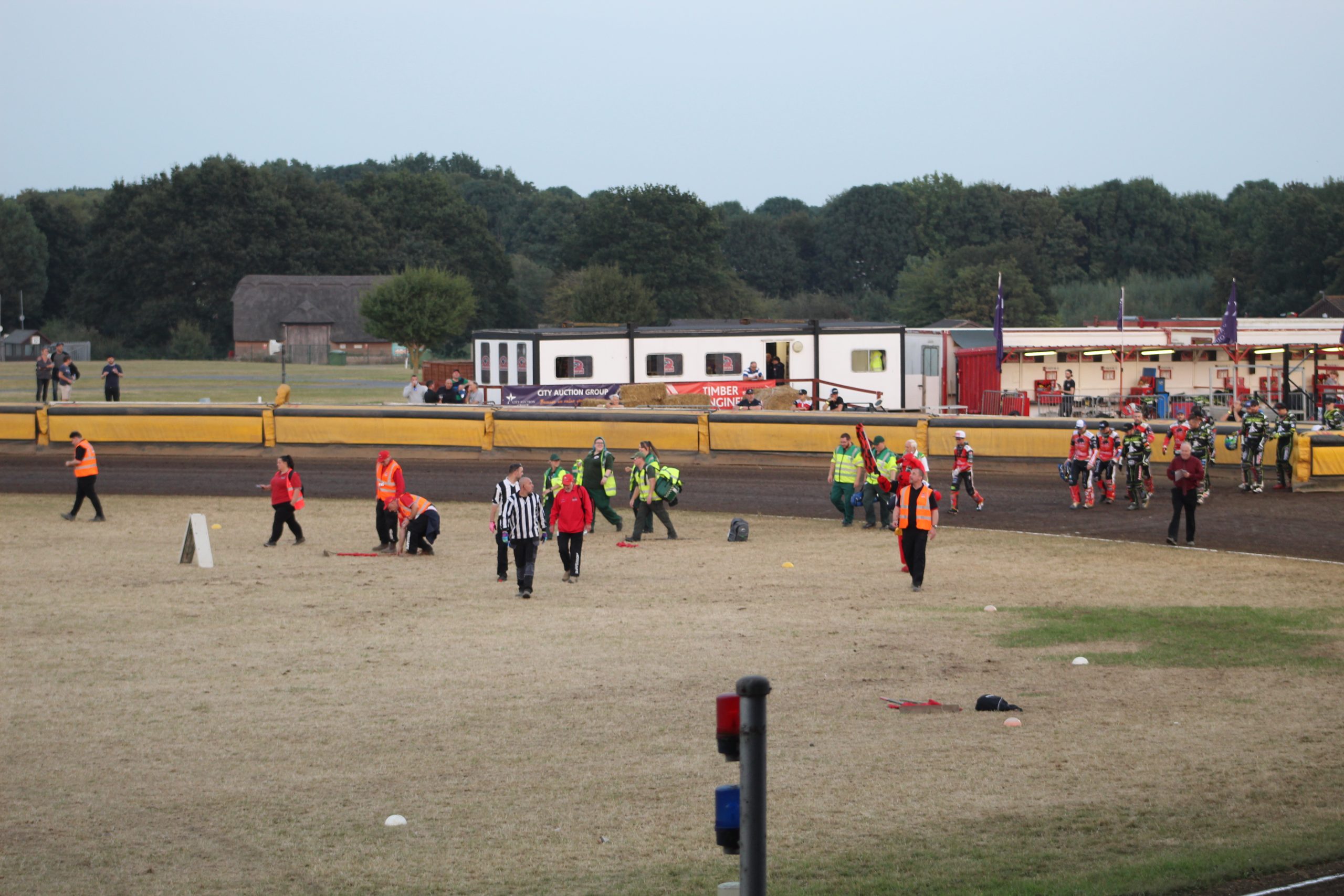
Professional Image & Presentation
You often hear people say Speedway needs to become a non-professional sport in the UK, it's absurd when you think about it, but you can understand why people believe this at first glance.
The professional image isn't there. During pre-match parades, the track staff wander onto the centre green like stragglers at a concert. Across the board, presentation is vastly overlooked. The demands of different demographics are not being met at each speedway experience. We have mascots at some tracks, not others. We have charismatic centre green announcers at some tracks but not others. You can have two vastly different experiences of Speedway depending on where you go, not just because of the facilities available. When you enter some stadiums, it's like you've gone through a time warp, they are playing music from the 1980s on tiny speakers from the garage, and the décor is suited to the music's era.
Speedway now must compete with vast home comforts, television and streaming services, video games and the internet. Tempting people out much harder than it once was, we have new challenges to address like persistent night closures on the roads and people seeking more value for their money. Is it possible for today's youth to get as excited about a speedway race in the way we did in our youth, especially when you consider the technology available today?
This issue is further compounded by Speedway's lack of presence in the digital market, streaming services have been introduced in some places, but overall it's not enough. British Speedway has started putting out random race clips which, is certainly a start, but it doesn't air professionally enough.
We could do with 3 to 4-minute highlight packages after every league match, some clips from a few races with narration over the top, followed by one interview from each side. This is the basic foundation for the sport. We can extend to more exciting stories about specific events such as any controversies between riders or teams managers etc.
British Speedway is improving its digital footprint. Regular match previous and weekly round-ups can be found on the official website and regular social media posts with pictures from matches, but more work is needed. During the press's matchday experience, far too many times, I've seen well-connected professional media turn up to Speedway like it's a third-world country. The bare minimum any media outlet requires is to connect their laptop and somewhere to write, preferably with access to hot drinks.
You'll often hear the complaint that Speedway doesn't get news exposure, but the sport itself doesn't do enough to encourage the professional image it needs.
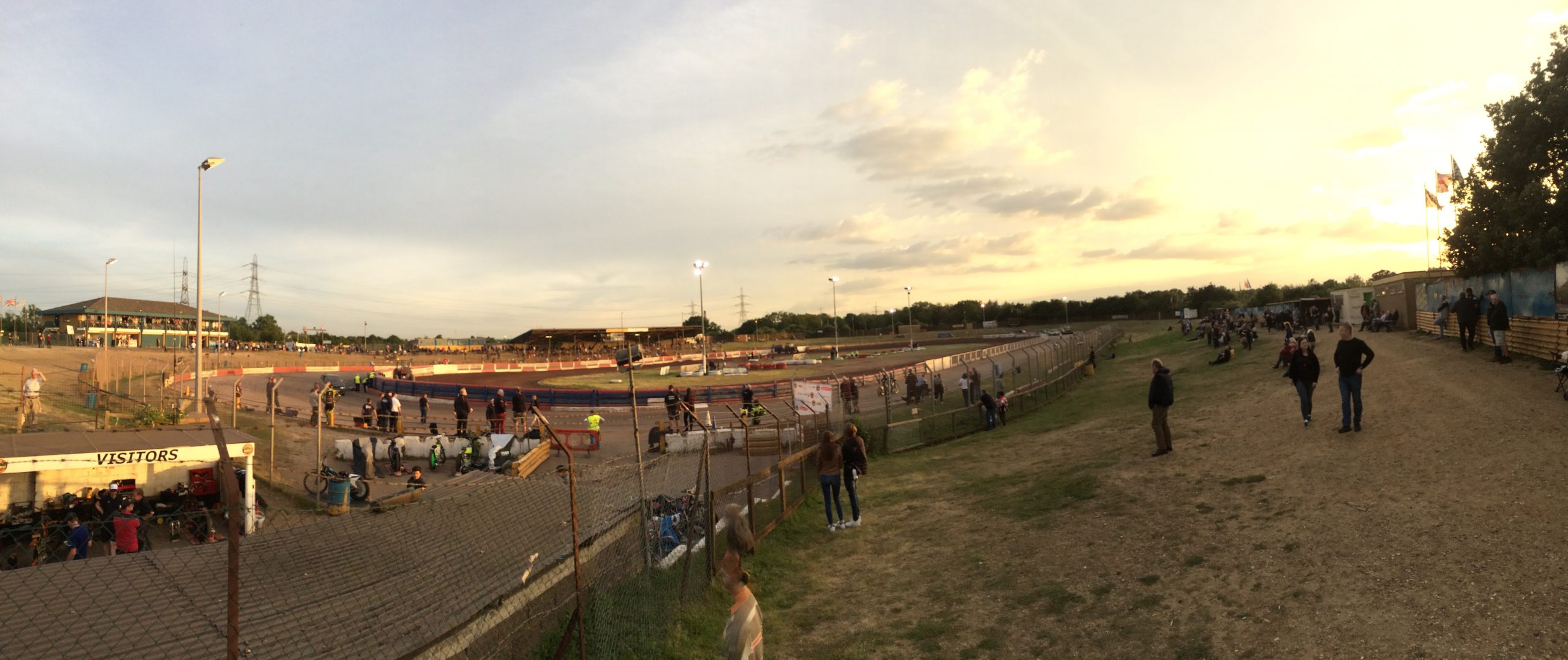
Lack of Staying Power
Speedway is rarely thought of as part of our local communities. It's the noisy neighbour that needs to be muted. It's mainly about perception. Look at Formula 1. As a sport, It's no better than Speedway, but it's a commercial monster as a product. That business and industrial-strength means the sport can't be bullied the way Speedway does; I'm sure people at Sport England's would think twice before delivering a damning report on a road racing circuit. The same applies to football. Can you imagine the residents of Birmingham complaining about the noise at St Andrew's? Football is a part of the community; you've got youth academies bringing kids in on weekends and weeknights, social clubs, public initiatives to support the local community. Football clubs are an integral part of the city; Speedway is the pesky little sport that insists on continuing despite the low attendances and run-down facilities.
This leads me to the stadiums themselves. Speedway repeatedly falls foul of excessive red tape, constant issues with planning, developers pressure, licensing, local complaints from residents, curfews, parking restrictions, noise limitations and bureaucracy from town halls. On top of all this, the speedway clubs own very few tracks, so they have to operate within the confines of greyhounds, stock cars, Football, Rugby or temperamental managing agents and landlords. Motorsport is generally seen as unpopular, especially in modern trendy areas like London who think on a greener line.
Track issues are often compared to Polish Speedway again, but people forget the Polish councils back the clubs and actively fund the speedway teams, contributing as much as 30% of their annual budgets!
Tracks are closing faster than they are opening. Prime locations are being lost to small venues in obscure places. We now have large chunks of the country where there are no tracks, especially in the southwest. The history of the sport is in jeopardy, and we need to protect it at all costs. Bradford, first opened in 1946, closed in 1998, never to re-open. Cradley Heath, 1947 to 1996, Reading 1968 to 2008, Coventry 1929 to 2016, Newport 1964 to 2011, Exeter 1947 to 2005. These are just a few examples, generations of fans lost, years of history lost to time.
If we are to survive, we need to become stronger and more resilient, no longer be in constant retreat. We must fight back, take the front foot, let number know Speedway is a major player,, and you will take us seriously. Closing venues is not an option. All the resources we have, need to be thrown behind, keeping places like Coventry alive, not just to run, but to become the hub of Speedway in the future.
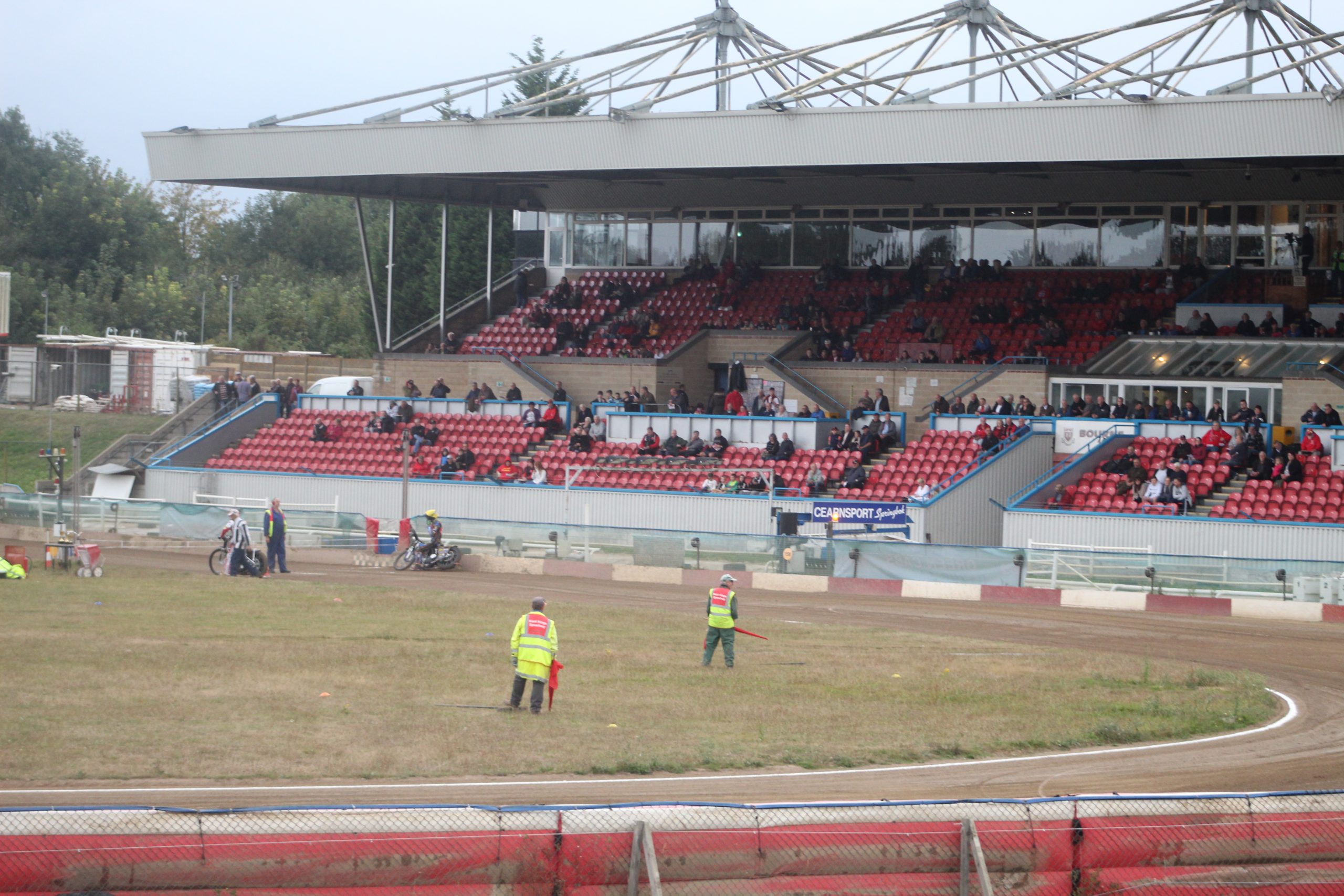
The Target Demographic and Ageing Audience
I bet you've all been there, talking to someone, and you tell them you're off to Speedway tomorrow, and they say, 'is that the thing where the cars go around in circles. Cue your internal organs exploding and you jumping across the table in an attempt to strangle said innocent bystander for their ignorance. This is the reality of modern Speedway; I've lost count of the amount of times someone has said to me 'I didn't know that was still going' or 'I used to go the speedway at 'Insert track name' back in 'insert year'. They'll probably vaguely recall Ivan Mauger or Barry Briggs, and one of the heat leaders at their former local team. This is especially prevalent in London, where there isn't a single-track left. A place where the pinnacle of the sport was once staged, now a distant memory. The core fanbase started to slip away. Once it's gone, getting it back is challenging.
We all know speedway audiences are ageing, but we don't appear to know how bad the situation has gotten. Speedway needs to appeal to fresh blood, but it doesn't appear to know who the new demographic is? We often say Speedway is a family sport, yet it runs on weeknights in school term time, starting at 7.30 and often finishing at 9.30 to 10 at night. Any families with kids under 11 are likely to be put off, as kids' bedtimes for school the next day are generally much earlier than 10 pm.
Entire generations are passing by the sport in locations once dominant within the sport. The sport has a robust integral fanbase, but it's not growing. Referral marketing is the strongest type available, I follow the sport because of my Dad, and I'm sure many of you do because of friends and family. If we are to attract new fans we need to change the way people look at the sport, from the outside.
Speedway's mindset is inherently negative, and the fans and public perception hugely influence this. Rightly or wrongly, hardcore fans don't trust the powers within Speedway to carry it forwards. Transparency has been lacking when it comes to decision making within British Speedway. Indeed, people often feel they have the right to more information than is practicable, but that expectation still needs to be managed.
If the people who follow the sport can't recommend it, what chance does it have to survive among broader demographics? The message needs to change.
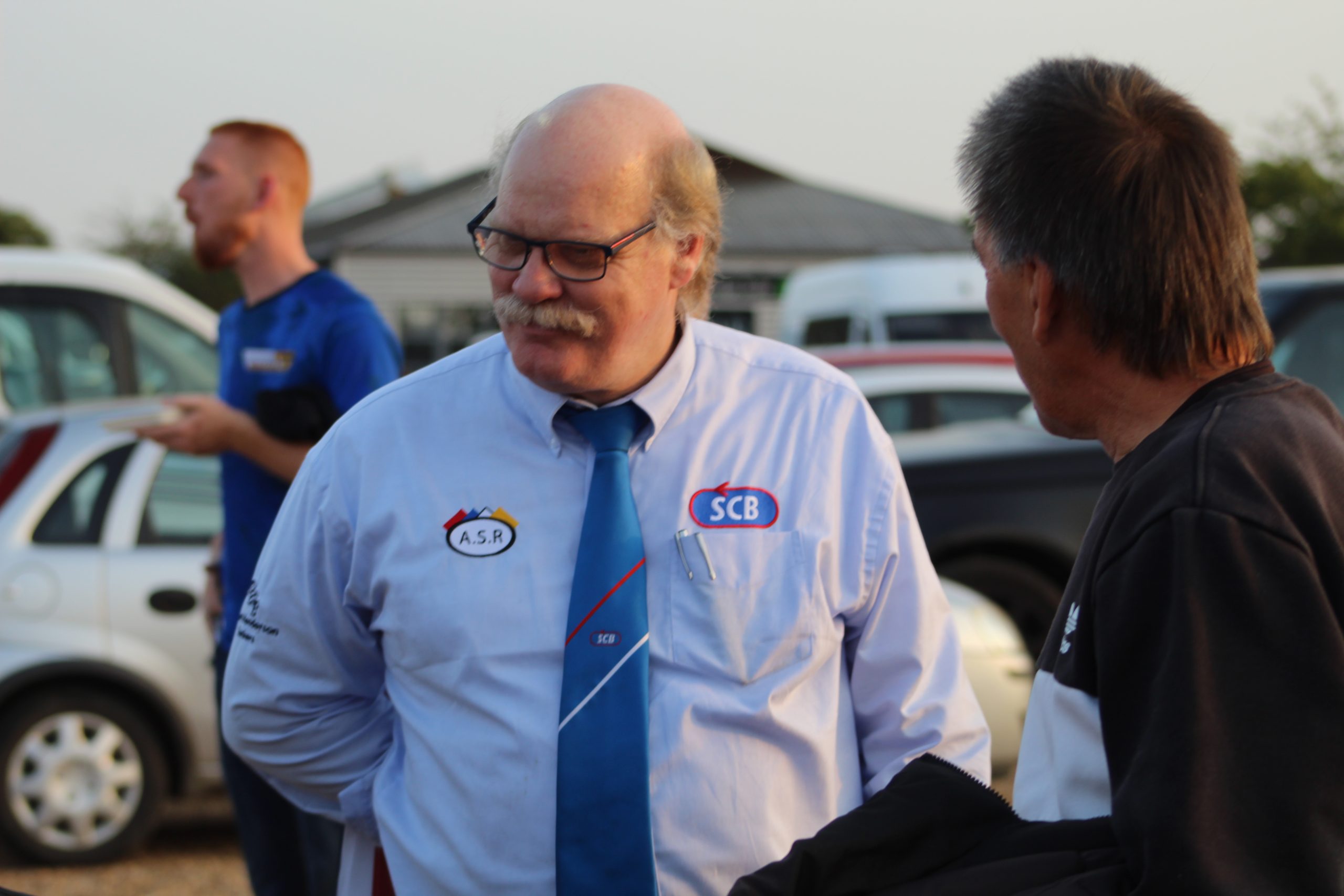
Overcomplicating Speedway
In 1992, when football embraced television and became the premier league, one thing never changed, the game of football. Yes, 20 years later, it's starting to change with the introduction of VAR, but the core game remains intact. If a match is one-sided, then it stays one-sided. If it was Speedway, you can imagine the introduction of a rule where clubs who go three goals down could nominate a player to score double or something.
Speedway as a sport is easy to understand in principle, but its rules are constantly changing. Averages would freeze top riders out of the sport; riders could score double points one season and not the next. The amount of points you get just for winning a match has changed frequently. The sport isn't always easy to follow and make sense to a general audience; if it's difficult to explain a rule to someone, chances are it's over complicated. A confused mind doesn't buy.
I'm very aware of why they make these changes; it's usually to keep the score close and the match interesting. But, all the tinkering is irrelevant to a new audience if they don't have a scorecard.
Here's an example to show what I mean. If you walked into a football match 30 minutes in and watched the rest of it, not knowing the score, the impact of what's happening on the pitch will be lessened by you not knowing the consequences for crunch moments in the game. You can imagine an injury-time equaliser for the home team, all the fans jumping around going mad, and you standing there because you didn't' realise the score. The scorecard is the most crucial part of the matchday experience, and presently, the only way to obtain one is by buying the programme
